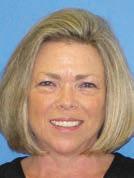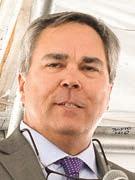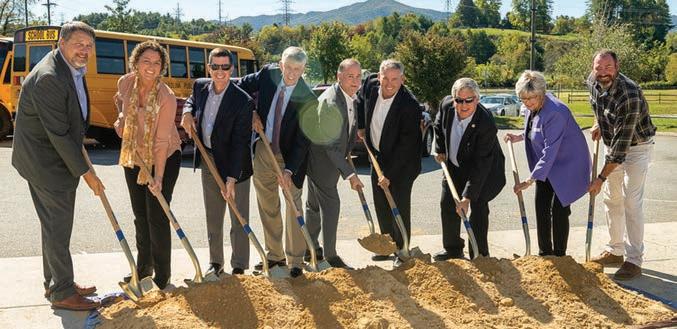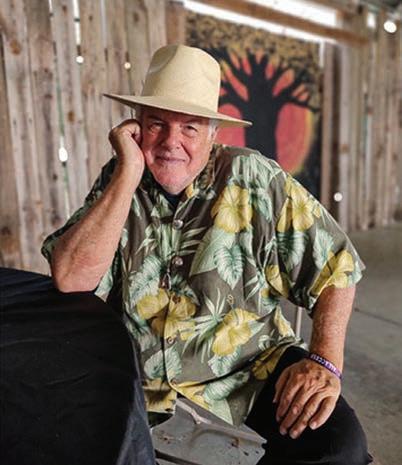to





Amanda Bradley. . . . . . . . . . . . . . . . . . . . . . . . . . . . jc-ads@smokymountainnews.com
Sophia Burleigh. . . . . . . . . . . . . . . . . . . . . . . . . . sophia.b@smokymountainnews.com

C LASSIFIEDS: Scott Collier. . . . . . . . . . . . . . . . . . . . . . . . . . . classads@smokymountainnews.com



WRITING:
Perrotti.
Holly Kays. . .
Hannah McLeod. . . .
kyle.p@smokymountainnews.com
. . . .
. . . . . .
. . . holly@smokymountainnews.com

Q: I have high blood pressure and my doctor has told me to get more sources of POTASSIUM in my diet – but I don’t like bananas. What other foods are a source of potassium?
A: Having a low-sodium diet and one that contains good sources of potassium may help with blood pressure regulation. The good news is that many foods provide potassium, and it’s relatively easy to incorporate those foods into most diets. Easy to find and relatively portable, bananas are often a potassium “go to”-- 1 medium banana has 451mg of potassium. Some other options that provide higher amounts of potassium:
• Lima Beans (1c) – 969mg

• Swiss Chard (1c) – 961mg



• Jackfruit (1c) – 739mg
• Potato, baked w/ skin (1 medium) – 926mg; Sweetpotato -572mg

• Acorn Squash,(1c) cooked – 896mg; Butternut Squash-582mg; Canned Pumpkin-505mg


• Spinach (1c) cooked – 839mg

• Plantains (1c) cooked -663mg
• Yogurt, plain, nonfat (8oz) – 625mg; plain, low fat-573mg
Kiwi (1c) -562mg
Clams (3oz)

534



Cantaloupe (1c)




473mg
Line: Potassium
contain fruits and/or
found
potassium intake.
food






@InglesDietitian


 Leah McGrath - Dietitian
Leah McGrath - Dietitian
The debate over abortion rights now moves to the General Assembly — and therefore, the ballot box — but both sides have stepped up the name-calling and dehumanization, foreshadowing a bitter fight that’s becoming less about the actual issue and more about political demagoguery.
Since 1973, the Supreme Court’s Roe v. Wade decision had ensured the constitutional right to an abortion. Now, states have the sole power to regulate the procedure within their own borders.
A pre-existing North Carolina law triggered by the Roe decision allows the procedure to be performed at up to 20 weeks into a pregnancy.
Pro-choice advocates want to preserve that right, and have pledged to show up at the polls. Pro-life advocates say they’ll do the same, to elect legislators who will pledge to restrict or eliminate that right.
“With the overturning of Roe v. Wade on a national level, it becomes a grassroots localized issue to the state,” said Mark Zaffrann, a Haywood County resident who also serves as the past Grand Knight and Trustee of the Waynesville Council of the Knights of Columbus.
Zaffrann, along with others from the Knights and from St. John’s Catholic Church, gathered on Oct. 1 to march through Waynesville, holding signs and banners supporting the pro-life point of view. Among them was Dr. Bill Pincus, current president of a statewide group called North Carolina Right to Life.

Pincus agrees that this coming November, life is metaphorically on the ballot.

“At some point we would like to change enough hearts and minds to make that reality, to make abortion unthinkable,” he said. “Because in every abortion, a baby dies.”

In 1977, Candler resident Gloria Anderson was just 15 years old, and was also 11 weeks pregnant. While speaking to the marchers after their arrival at the Historic Haywood Courthouse, she said she had an

abortion she quickly came to regret.
“It was hard to get past, because I kept picturing, like teenagers do — I was 15 and so I just kept picturing what my belly would look like,” Anderson later told The Smoky Mountain News. “I remember standing in front of the mirror and I’d put a pillow under my belly, and when I would see babies, then I would think, ‘Well, I’m supposed to have one that size.’”
Anderson says she sees the issue from a Biblical worldview.
“If we choose to continue to condone the killing of innocent life, God will bring judgement on our nation,” she said. “So I think this election is important. Either we’re going to choose the way of God or we’re going to choose the way of the world, but we can’t straddle the fence anymore. It’s going to be one way or the other, I believe.”
But the practical realities of General Assembly action on the issue depend heavily on the ability of Republicans to post a net gain of five seats — three in the House, and two in the Senate.
Doing so would give the GOP what’s called a “veto-proof supermajority” like it had as recently as 2018.
While Republicans boast solid majorities in both chambers with 69 of 120 reps and 28 of 50 senators, Democratic Gov. Roy Cooper’s stated opposition to the Supreme Court decision overturning Roe means he’d likely veto any reduction in reproductive rights made by the General Assembly.

That’s where the veto-proof supermajority comes in; as evidenced by the name, it would ensure that Republicans, at least in theory, would have enough votes to override

Absentee balloting for the Nov. 8 General Election in North Carolina has already begun. In-person early voting starts Oct. 20.
Dr. Chris Cooper, political science professor at Western Carolina University, said he thinks the chances of Republicans achieving that goal are good, but not above 50%.
“I think the most likely outcome is something that looks a lot like what we have right now, which is strong majority, but not a supermajority,” Cooper said.
If the General Assembly takes up the issue of abortion after the election, it’s likely
to become even more bitter and divisive than it already is.
When pro-choice demonstrators held an event at the courthouse after Roe v. Wade was overturned this past June, some decried their loss of rights by calling Republicans “Taliban.”
After Anderson shared her story in the same place last Saturday, Republican congressional candidate Chuck Edwards called reproductive rights advocates “evil.”
“I can assure you that there is evil lurking and [it] is getting very activated and getting folks to the polls that are against this movement,” Edwards, currently a state senator, told a crowd of more than a hundred people.
“We can’t let that evil win out. We’ve got to vote for the pro-life movement at every level.”
C.E. Weatherby Stadium will host the County Clash between Tuscola and Pisgah football, despite rampant speculation that the game would be played at the Bethel Middle School field. A Shot Above Aerial Photography

Heated speculation lit up social media the night of Oct. 3. The rumor: The 2022 County Clash wouldn’t take place at Tuscola’s C.E. Weatherby Stadium as planned, but rather at the Bethel Middle School football field.
While Pisgah should host the game this year, because of extensive damage to its stadium and field it will be playing as the “home team” at Weatherby. Monday evening, people took to Facebook to say the game would be played at Bethel and that it was a done deal. A number of different potential reasons were provided.
And the rumor seemed compelling for a while. Even an article in the Mountaineer with the headline “Audible! Pisgah changes location of Tuscola rivalry game” reported that Pisgah Principal Clint Conner said the school’s decision to move the game to Bethel was in an effort “to do what’s best for our kids and community.”

By just about everyone’s account, the move was a done deal.
However, it was also known Monday night by stakeholders that there would be a meeting the following day with county leaders, including the fire marshal, to determine not how the logistics of playing the game at Bethel would work but rather how feasible and safe it would be to even attempt it.

Some problems to overcome went beyond the obvious fact that Bethel Middle would only be able to seat a fraction of the fans that typically come out for the big game. Highway Patrol would have to do traffic control and the Haywood County
Sheriff’s Office would have to do security, whereas the Waynesville Police Department would have taken care of that at Weatherby. Such efforts take a ton of planning and are specific to the venue.
Ultimately, following Tuesday’s meeting, Conner issued a statement.
“After working with emergency management services, the Pisgah versus Tuscola game will be played at C.E. Weatherby stadium due to safety concerns for the surrounding community,” the statement read.


“The Pisgah Nation will continue to persevere, and as always, we will continue to advocate for our students. Go Bears!”
In a brief follow-up interview with The Smoky Mountain News, Conner reiterated that the prior effort to move the game was all about the kids.
“We felt like we wanted our kids to play at home in the future, so once we found out that was not going to happen, we wanted to make it as much of a homefield advantage as possible,” he said.
Conner admitted that there were safety concerns brought up during the Tuesday meeting that derailed the Bethel plan, although he wouldn’t elaborate.
Of the effort to move the game to Bethel Middle, Pisgah Head Coach Brett Chappell said it had been a “group decision.”
However, he was quick to point out that at the end of the day, no matter where his players take to the field, they’ll be ready.
And of course, both Chappell and Tuscola Head Coach Chris Brookshire noted that there’s still football to be played before Oct. 14.
“It has been no distraction,” Brookshire said in a text message to SMN. “Our kids are focused on East Henderson this week.”
“There is no distraction to our team,” Chappell said. “We still have a game we are playing in West Henderson, and we’ll be ready.”












An evening filled with dinner, drinks, & dancing in effort to support children who have suffered abuse in Haywood County.BY HANNAH MCLEOD STAFF W RITER
Public schools have grappled with constant change over the last several years due to the impacts of COVID-19.
As most schools work through the first “normal” school year of the last three, the challenges are abundant. Learning loss accumulated during the height of the pandemic when students were engaging in class virtually is rebounding, if slowly, despite a growing shortage of faculty and staff. Through it all public school boards have been tasked with making the key decisions that will have impacts on the lives of students for years to come.
These key decisions being made by school boards at a quicker pace, combined with the growing responsibility of parents and guardians in a student’s learning due to inhome school, is largely what drove herds of parents to school board meetings with increasing frequency throughout the pandemic months, centering school boards in countless political debates.

“We have seen a national trend recently that has brought school board elections and school board members into the crosshairs of partisan politics,” said Chris Cooper, Madison Distinguished Professor and direc-
tor of the Public Policy Institute at Western Carolina University. “Part of that is because of the increasing nationalization of all politics. Voting patterns are increasingly consistent from dogcatcher to president, and school boards are no exception to that.”
The pandemic brought several sensitive healthcare decisions before boards of education, decisions in which parents wanted a say. Even before those healthcare choices had to be made, students spent months at home learning virtually and parents were tasked with even more duties than non-pandemic parenting involves, giving them an up close and personal view of what their children were learning and how they were learning it. Throughout the whole process, public comment sessions, usually a sleepy affair, became longer and more heated.
“The masking issue and the school shutdown issue clearly were an accelerant to a fire that was already burning,” said Cooper. “We’ve been becoming increasingly partisan. Our school boards are becoming increasingly partisan, and the pandemic absolutely contributed to that.”
During the pandemic, school boards were required to be public and transparent in the decisions they made. One requirement insti-
tuted statewide at the end of August 2021 mandated that school boards take a monthly vote on mask mandates, or lack thereof. Not only did this give parents an opportunity to understand the board’s decision-making process, it also gave them a monthly opportunity to share their opinions on the subject of administrative pandemic decisions, along with anything else they thought relevant to their child’s education.
“Many of the national political issues are also inherently local issues,” said Cooper. “The national conversation over the degree to which critical race theory is taught in schools is not a decision that’s determined at the national level; it’s one that is determined at the state and particularly the local level. So you’ve got national politicians using rhetoric that can only be implemented by local politicians, in this case, school board members.”
This politicization is not a new process. It has been happening for decades, long before the pandemic.
“There’s no question that school boards have become increasingly politicized,” said Cooper. “They have made political decisions, of course, for years, but they operated a bit in the shadows. The average voter was sort of unaware of what school boards did and might
even be unaware that they voted for school boards.”
At the state level, Reps. Mark Pless (RHaywood) and Mike Clampitt (R-Swain) introduced a bill earlier this year that would have made all boards in Haywood County, including school board, partisan-elected.
The bill did not make it off the ground and while several current board members expressed ambivalence about the idea of partisan boards, Chuck Francis, Steven Kirkpatrick, Larry Henson, Jimmy Rogers and Bobby Rogers have all switched party affiliation from Democrat to Republican since the last time they ran for school board. What used to be a 63 Democrat majority board is now a 6-3 Republican board. Jimmy Rogers, Kirkpatrick, and Henson are all up for reelection this November. Rogers and Kirkpatrick are running unopposed in their district; Henson is challenged by Democrat Mike Graham.
Billy Handley is running for school board this election season in Macon County and is one of only a few candidates who supports the idea of partisan school boards.
“I feel the school board is already a partisan position, and I would not have thought so before I started running,” said Handley. “Personally, I F
Unique among the Smoky Mountain News’ four county coverage area, the Swain County School Board is a partisan-elected board. This election cycle there are four candidates competing for two seats. One is currently held by Travis Hyatt, a Democrat, who is seeking reelection. The other is held by Kim Carpenter who is not seeking reelection.
Two Republicans and two Democrats are competing in the General Election. All voters in Swain County will vote for their two candidates and the top two vote getters will fill the seats on the board.
R.L. Taylor is a native of Swain County and a graduate of Mars Hill University with a degree in teaching. He owns and operates an insurance agency, participates in the Swain County Schools Reading Buddies program and coaches and sponsors little league teams and recreation park basketball teams.


“I am always glad to donate in support of the local fundraisers and in support of school events,” said Taylor.
Taylor spent 33 years as an educator and believes this experience gives him better insight into not only the strengths of the school system, but also the areas that need improvement. He says his Christian roots and values have guided him throughout his life.
“I believe I can help our system get better while helping to improve our children’s education experience,” Taylor said.
Lisa Loftis is the director of the State of
Franklin, a private nonprofit health planning agency. She has five children in the Swain County School system. Loftis decided to run for school board because she wanted to be as involved as she could in what is happening within the school system her children are a part of.
“As a mom, oftentimes we’re doing a lot of the picking up and dropping off and the teacher meeting and that kind of thing,” said Loftis. “I really want to help bridge the communication between faculty and parents.”
If elected, Loftis’ priorities would be to advocate for the children of Swain County and allow her faith to guide her in any decision making that would come her way.
Taylor says he would work to ensure Swain County Schools are ranked among the best in North Carolina, promote an attitude that Swain students are as capable as any in the world, set high standards and help everyone realize that they have an obligation to teach and train children to become responsible adults with ethical and moral values.
When he graduated from Swain County High School, Jamie Fisher went

directly into the United States Army. After serving in both the army and the National Guard, Fisher returned to Swain County and has worked for Coca Cola for the last 27 years. He has coached little league baseball and football, served on the Swain County Social Services Board, Swain County Board of Elections and the schools’ booster club.
“It’s just been a privilege of mine to support the kids of this community ever since I came home out of the military,” said Fisher.
Fisher describes himself as having been a hyper child. When he was in first grade, he had a teacher who would hug him every day and say ‘just be better today.’ Educators made a big impact on his life.
“She made all the difference in the world,” said Fisher.
“Ten years ago, I had a near death experience, and when I realized I was going to live, I said I want to give back to my community. I said if I ever get up from her, I’ll do everything I can.”
Travis Hyatt was first elected to the Swain County School Board in 2018. He is a graduate of Swain County High School and received a Bachelor of Science degree in Criminal Justice from Western Carolina University. He now works as a supervisor
for Duke Energy. He first ran in 2018 because he felt compelled to give back to his community.
“After losing our home in a fire a few years ago, Swain County rallied around us and took care of every need and hardship we encountered,” said Hyatt. “I vowed at that time that I would do everything in my power to give back to the community that got us through one of the most challenging times of my life.”
Hyatt has three children, one of whom has graduated from Swain County Schools, two who attend high school now. Additionally, his wife has been working in the school system for 25 years. This investment in the system is part of what makes Hyatt invested in giving back.
“I believe in public education, and I love what this school system means to me and my family,” said Hyatt. “I am visible throughout the community and can easily be found at school functions whether it be academic banquets, plays or sporting events. My door will always be open to you. I believe Swain County Schools can and should be the leader in Western North Carolina.”
Hyatt is particularly keen on making sure there is complete transparency when it comes to the board’s decision-making process. He would also like to see the county improve upon its graduation rate, which has been below the state average for two years now. During Hyatt’s time on the board, the school system completed its expansion project at Swain County High School and has submitted a needs based grant for construction of a new middle school.
think it should be a partisan position.”
Some of those school board members and candidates who are in favor of partisan school boards say that these boards are already partisan in everything but name.
As Marla Morris, candidate for Haywood County School Board, pointed out, a candidate’s party affiliation is public record and local political parties will list which candidates the party supports, even for nonpartisan boards.

If school board candidates already embrace political parties, even if they aren’t running for a partisan board, does it matter if these local leadership positions become partisan? Cooper said partisan school boards could result in, among other things, a decline in trust of local schools.
“If half the country’s bright blue and half the country’s bright red and a school board is controlled by the red or blue faction, the other side is going to distrust them,” said Cooper. “So I worry about it from that perspective, regardless of who’s in charge. It’s a convenient excuse to distrust the system.”
Then there are the faculty and staff to consider, the people whose very livelihood is wrapped up in the work, advocacy and decision of school boards.
“People are being elected to school boards on the promise of making changes to teachers’ jobs, and teachers are going to feel that,” said Cooper. “Whether they can follow through with that change is a different question, but the rhetoric is certainly felt by teachers and is contributing to the crisis we have in this country of teachers leaving the profession.”
The loss of public school staff is a growing problem in Western North Carolina. North Carolina teachers already make around $10,000 below the national average for public
school educators, even when accounting for local supplements. According to a report from the North Carolina School Superintendents Association, there were an estimated 11,297 vacant positions in North Schools prior to the start of the 2022-23 school year, up from 7,639 at the start of the 2021-22 school year.
Still, a large majority of the candidates interviewed for the impending school board elections told the Smoky Mountain News that politics have no place in the classroom or the school board. Except for a few outliers, many of them never want to see the day that their local school board is a partisan-elected board.
“Politics have no place in education, especially at the local level,” said Brooke Haynes, a candidate for Haywood County School Board. “Rather than divide our nation and community even more, nonpartisan races seek to unify us in the best interest of our children.”
This November there are school board races taking place in Haywood, Macon and Swain counties. Jackson County held its school board election during the primary election earlier this year and now has three new members.
There are two seats up for grabs on Swain
County’s five-seat board of education. Because Swain’s school board is a partisan board there are two Republicans, R.L. Taylor and Lisa Loftis, and two Democrats, incumbent Travis Hyatt and Jamie Fisher, running for the open seats. All voters in Swain County will have the opportunity to vote for two candidates and the top two vote-getters will join the board.
The Haywood County Board of Education is made up of nine seats, four of which are up for election this fall. Two incumbents, Jimmy Rogers and Steven Kirkpatrick, are running uncontested in their districts of Clyde and Fines Creek, respectively. The third incumbent in the race, Larry Henson, is challenged by Mike Graham for the Bethel district. In the Crabtree district Brooke Haynes and Marla Morris will compete for a seat, meaning that whoever wins will become the sole female representation on the board.
In Macon County, districts two and four are up for election. District two incumbent Tommy Cabe was running for reelection but passed away last month. Danny Reitmeier, Stephanie Hyder Laseter and Billy Handley will compete for the seat. In district four incumbent Carol Arnold is challenged by Diedre Kaye Breeden.
“We have seen a national trend recently that has brought school board elections and school board members into the crosshairs of partisan politics.”
— Chris Cooper, Madison Distinguished Professor and director of the Public Policy Institute at Western Carolina University
On the heels of new academic data showing Haywood County Schools ranking seventh among the state’s 115 districts, school board elections will bring four seats before voters.
The Haywood County School Board is made up of nine members serving staggered four-year terms. Seats representing the Bethel, Clyde, Crabtree and Fines Creek districts are up for election this year. Of those, both Jimmy Rogers in Clyde and Steven Kirkpatrick in Fines Creek are long-time incumbents running unopposed. Rogers has served on the board of education for 22 years, Kirkpatrick for 20 years.
In Bethel, Mike Graham is taking on another long-time incumbent, Larry Henson. Graham has been interested in running for school board for a while now. This year, when he saw that Henson might be running unopposed, he decided the time was right.

“I just think that regardless of how well somebody is doing that they should have an opponent,” said Graham. “You can get complacent in your job if you don’t have somebody at your heels sometimes.”
Graham owns the Jukebox Junction in Bethel. He has worked in both education and hospitality throughout his career, marrying the two when he worked as a Career and Technical Education teacher. His experience in high-level restaurant management was an asset for the CTE programs he worked in and helped him to build a curriculum that would prepare students for the real world.
One of Graham’s goals for Haywood County Schools is to turn one of the high schools’ Home Economics Departments into a Culinary Hospitality Program. He would also like to see some of the growing tourism income from room-tax dollars spent on bolstering such a program.
“Tourism is one of the big drivers in our region,” said Graham. “There are a lot of job opportunities there and a lot of companies are struggling to fill those positions.”
Graham considers his experience within the school system, teaching in CTE programs, coaching football and basketball, combined with his managerial hospitality experience as the right kind of background and set of skills to help lead the Haywood County School system.
Larry Henson has been on the school board for 12 years and currently serves on the finance committee. He owns and operates his business Henson Tree Services. Henson was unable to find the time to speak to the Smoky Mountain News regarding his race for school board.
While most members of the Haywood County School Board are long-time incumbents, the board is guaranteed a new member from the Crabtree District. Brooke Haynes and Marla Morris are competing for the seat, ensuring that next year there will be one female representative on what is currently an all-male board.

Haynes graduated from Tuscola High School and holds a bachelor’s degree in Human Ecology. She previously worked in health education at the Buncombe County Health Department doing fitness and nutrition programming. After her first child was born, she worked for several years as a fitness instructor and personal trainer at the Haywood Regional Fitness Center. She is currently in her fourth year coaching Waynesville Middle School Cheerleading, and has been involved in both the Lake Junaluska Warrior and Waynesville Mountaineer Youth Football and Cheerleading programs.
“Over the past four years I’ve coached, I’ve subbed and I spent the last six weeks of school last year being a permanent substitute at Waynesville Middle,” said Haynes.
“That gave me an insider’s view of our school system. It showed me some things that need to be worked on. We have a great school system, but there’s always room for improvement. I feel burdened to help and I feel called to fight for those that just can’t fight for themselves.”
Marla Morris is also a native of Haywood County, raised on a dairy farm in Crabtree. She is a graduate of Tuscola and holds a bachelor’s degree in parks and recreation management from Western Carolina University. She has volunteered in the school system for over 20 years as part of the Riverbend and Waynesville Middle Parent Teacher Organizations, school improvement teams at Waynesville Middle and Tuscola and the Fellowship of Christian Athletes, of which she is currently on the board of directors for North Carolina. She has also worked as a substitute teacher in the school system.
“I have always believed in living a life of service and investing in meaningful work every day,” said Morris. “The youth of Haywood County have been my passion and purpose for the last 20 years. Serving on the school board would be a new opportunity for me to work in service for the students, teachers and staff of Haywood County.”
If elected to the board, Morris would like to see the county establish a trade high school, continue to grow the schools, maintain a positive retention rate and ensure students have the environment and tools needed for success in and out of the classroom.
“An innovative trade high school would
allow students the opportunity for careers that could reinvest back into our county,” said Morris.
In her campaign for the board of education, Haynes has promised to do what she can to support teachers, promote policies of impartiality throughout the school system and fill the gap in the school nutrition program.

“There are so many families that do not qualify for free or reduced meals but can’t afford to pay the $3.75 a day cost for school lunches,” said Haynes. “We were able to figure out how to feed children during COVID when our economy was shut down; I don’t see why we can’t figure out ways to fill that gap and pay for those lunches when our economy is up and running, especially at a time when we’re dealing with inflation and price increases.”
Haynes would also like to see as much transparency as possible in the board’s decision-making process, with thorough research and vetting of the recommendations brought to them by the central office or the county. The school board recently hired a new superintendent after a brief internal search in which one candidate was considered.
“I am disappointed that the board failed
to open the position to both internal and external applicants,” Haynes told the Smoky Mountain News at the time. “These gentlemen had the opportunity and responsibility to both students and teachers to ensure the best candidate was placed in this position. By failing to form a search committee, they failed to ensure their decision reflects the best interest of every student.”
Morris did not say whether she would have advocated for a different process; however, she did note that there were several superintendent positions open in the region, and 50 statewide at the time that HCS was looking for a new superintendent.
“Haywood County is fortunate to have highly qualified candidates from within our system,” said Morris. “Our school board members, with a unanimous vote, chose a qualified, dedicated and proven leader in Haywood County Schools.”
Morris says she is a strong supporter of parental rights in education and wants to see Haywood County Schools make a strong recovery from the recent difficulties caused by COVID and the flooding that hit the community.
“I would like to see our county start putting education first and making our students a priority for funding,” said Morris. “We need to revisit the funding formula our county has in place. I am willing to work with county leaders to find additional funding for the school system and to move forward with a vocational high school.”
Haynes says she wants to see a fresh perspective on the board of education, one she thinks she can bring.
“I will work tirelessly for our students and teachers,” said Haynes. “Currently I have two children and two nephews in school. I have a niece in the North Carolina Pre-K program, and a niece in the intensive intervention program at Clyde. Through them, I’m reminded daily of the important role that school plays in the lives of all our children. We have amazing teachers in Haywood County, and not only do I want to keep them, but I want to attract competent and caring professionals for our school system. I would dedicate my work to teachers and students and stand up for what is right. equitable and fair.”
This year, Macon County Schools began the process of building a new high school. The Franklin High School that exists now has been there since the 1950s and current plans are for the new school to be built on the same site, through a multiyear process of demolition and construction.
This election season, voters in Macon County have the opportunity to vote on two items that could affect the outcome of the long-awaited new school.
First, the quarter-cent sales tax intended to help fund the project will be on the ballot as a referendum. This would raise its sales tax from 6.75 to 7 cents per dollar, with all additional revenue from the increase going back to Macon County. It’s estimated this would generate just over $2 million in additional annual revenue that would go towards funding the capital projects plan.

Second, there are two seats up for election on the five-member Macon County School Board. In district two, incumbent Tommy Cabe was running for re-election when he passed away in September. There are three candidates left competing for his seat — Billy Handley, Stephanie Hyder Laseter and Danny Reitmeier. In district four incumbent Carol Arnold is challenged by Diedre Breeden.


Billy Handley graduated from Franklin High School, received a Bachelor of Science Degree from Western Carolina University and works as the general manager of Tastinger’s Floor Covering in Franklin. Handley has coached youth sports in Macon County for almost 30 years and has two children, one who has graduated from Macon County Schools, one who is still attending.
“I have been considering running for the school board for several years,” said Handley. “I finally decided that talk is cheap and it was time to throw my name in the hat. I feel that our teachers, staff and students are being short-changed by some of the conditions of the schools they attend and work at.”
If elected, Handley would work to get the new high school project done as soon as possible. Additionally, he would like to see plans
started immediately for a new Nantahala School. He plans to advocate for teachers in Macon County so they do not have to spend personal money on classroom needs and would like to see more vocational and agricultural classes available at the middle school and high school level.

“As a former member of FHS chorus, I believe band, chorus and the arts should never be put on the back burner,” said Handley. “I would also like to make sure we continue to push the basics. For example, personal finance, home economics and basic automotive knowledge for every student.”
Stephanie Hyder Laseter is a native of Macon County and a mom of two kids in the public school system. She is a biologist by training with the Forest Service, teaches kids at First Methodist Church, has chaired parent teacher organizations, worked with youth sports and volunteered for the Mainspring Conservation for several years prior to being an employee there.

Several years ago, after becoming heavily involved in conversations around funding for Macon County Schools, Laseter and a colleague started the “Support Our Schools” campaign in order to get parents and the community more involved in understanding how decisions were made at the school
board level. The goal was to keep the community informed about everything having to do with education.
“That process really led me to have a good understanding of the school budget process in Macon County,” said Laseter. “It’s the responsibility of the board to provide an excellent teaching environment for teachers and an excellent learning environment for students. Whether that’s the classroom space, or with the things in the classroom, it’s important to me that we do our best to long-term planning and long-term thinking around those decisions.”
Laseter is a strong supporter of the quarter-cent sales tax referendum and the new high school project.


“I think it’s really important that people understand that that’s money we could be keeping here locally,” said Laseter. “We could use that for a new high school facility, which is much, much needed here.”
When it comes to school safety, Laseter is not only interested in physical school security; she also wants students to be secure while using technology that is becoming increasingly common in education. She wants teachers, administration, school board members and parents to be aware of the changing nature of online bullying and online safety protocols.
Laseter wants to not only serve Macon County Schools locally, but also advocate for the system at the state and federal level. Through the “Support Our Schools” campaign, she has learned that this can only be achieved by showing up.
“I just advocate for showing up. It’s really important to be in the room,” said Laseter. “I understand budget complexities, I understand the challenges facing the school board, because I’ve been present at a lot of meetings recently. I’m a mom of kids currently in the school system. I see challenges that teachers face in the classrooms, what kids face and I think I have the leadership and experience to be a strategic thinker and to focus on the long term.”
Danny Reitmeier graduated from







High School shortly before joining the Air Force. He currently works as the Landscape Maintenance Operations Manager for Clark and Company Landscape Services in Franklin. He has been very involved in youth sports, coaching and refereeing for many years. He has worked with the high school football team as the equipment manager and taught Sunday School at his church.
Reitmeier campaigned for a spot on the county commission earlier this year but did not make it out of the primary.



“I have a real strong desire to serve,” said Reitmeier. “I served in the Air Force and I like to help people. I want to help guide our county, our school system down the road into the future. Kids are the future of our county, we need to give them the best opportunity we can to be the best citizens as they get out into the world.”
Reitmeier’s priorities, if elected to the board, include building the new high school and equipping the building with the best facilities available, hiring the best teachers, staff and administrators and fostering a smart budget.
“We have to remember our budget money is not our money for the people that sit on the board to do with as we want,” said Reitmeier. “Our taxpayers pay that and they expect us to be good stewards of that money, use it wisely.”
Parents are key to the school board’s success in Reitmeier’s view. He would like to see more community involvement and input in order to help the board of education make the best decisions possible for the community they serve.

“I know that nobody will outwork me and I would always be available and accessible to listen to anybody,” said Reitmeier. “This is my hometown, this is where I’ve grown up, I want nothing but the best for our county and our school system.”


Carol Arnold is the lone incumbent in the race for Macon County School Board. She was appointed to the board two years ago to finish out the term of Fred Goldsmith when he resigned from his position. Arnold was recently appointed vice chair of the school board after the passing of Tommy Cabe. She previously served on the Macon County School Board from 1998-2002, but did not seek reelection after that term.

Arnold is a native of Macon County and has spent over 41 years in education working in several different positions including classroom teacher, principal, associate superintendent and consultant.
“I have decided [to run again] because we have some projects that we have been working on diligently with our county leaders,” said Arnold. “We have been looking at a new
high school and I’ve been very active on the Facilities Committee for that so we can go ahead and start the process and it is going very well right now.”
With her expertise in education, Arnold would like to work for stronger parent involvement, which she says makes a huge difference in a child’s education long term. She would also like to see more access to early childhood education. Arnold holds a bachelor’s degree and a master’s degree in early childhood education.
“I believe in working with children in pre-K programs, especially at the age of three and four years,” said Arnold. “Students that have participated in pre-K programs have a much easier transition into Kindergarten than those who have not. It’s a commonsense approach to education.”
Much of Arnold’s work in education involved grant writing. Over her 35 years in education administration, she estimates she brought in over $200 million for the programs she worked in and wrote grants for.

“I think I am the most qualified candidate for this position,” said Arnold. “I have a wealth of knowledge and degrees in education. I have a vast knowledge of grant writing and how to bring money and partners in, and I have the time to do the job.”
Diedre Breeden is a licensed clinical mental health counselor supervisor who currently owns a Christian counseling practice in Franklin. She has long been a volunteer in the school system and works for the community through her non-profit Heart for Families.


“I want to make a difference for our community and I have insight and experience from my career that allows me to bring a unique perspective to the board that would benefit our students and their families,” said Breeden.
If elected to the board, Breeden will prioritize teacher support while also striving to protect the input of parents and their choices in students’ education. She will work to ensure students have a safe environment to learn and access to as many opportunities as possible. Breeden is strongly in favor of a new Franklin High School.
“I am a parent of three, connected with and invested in the dynamics of our schools and community,” said Breeden. “I will unapologetically stand on truth, fight for parents and families, strive to ensure our board is wisely investing resources in our schools and always promote the best interest of students.”
Voters in Graham County can now establish legal residency simply by declaring their “intent” to reside in a particular place, despite overwhelming evidence that they do not actually reside in that place, after a Sept. 28 ruling by the Graham County Board of Elections.
The ruling came at the end of a prolonged 10-hour hearing in Robbinsville, meant to address two of the eight voter challenges filed earlier this year by Lake Santeetlah Town Council Member Diana Simon.

Back in 2021, the results of Lake Santeetlah’s municipal election came as a surprise to residents of the tiny lakeside town, home to both permanent and seasonal residents. In the previous election, only 75 votes were cast (voters could cast up to five votes for five council members), but in the 2021 election, there were almost 130.
Simon identified 11 voters she said were only seasonal residents of the town, and retained Asheville attorney John Noor to bring voter registration challenges against eight of them.
In July, the Graham County Board of Elections held a preliminary hearing during which the board determined that there was probable cause to suspect that the eight individuals had registered fraudulently.
Six of them — Buncombe County veterinarian Dean Hutsell, his wife Linda and their daughters Amelia, Kaylee, Olivia and Savannah — subsequently de-registered in Graham County or re-registered themselves at the Fairview home where it’s alleged they had actually resided all along.
The change in registration made the Graham County challenges moot, even though all six Hutsells affirmed in their voter registration applications that they lived at a Lake Santeetlah home that had burned down in 2019 and still does not have a certificate of occupancy from the county.
All six Hutsells voted in the disputed 2021 Lake Santeetlah municipal election from the nonexistent home, and several of them voted in the May 2022 Primary Election from the same address, but since the only relief the Graham County BOE could have provided was to purge the Hutsells from county voter rolls, Simon’s challenges against them have not been scheduled for a hearing.
The course of action taken by the Hutsells suggests that in North Carolina, voters can register at an unhabitable home, vote in multiple elections, and then avoid accountability so long as they re-register at another address prior to any voter challenge proceedings being heard by a county board of elections.
However, the Hutsells have not escaped notice by the North Carolina State Board of Elections.
“The issues raised regarding certain vot-
ers registered in Graham County are following the normal course of action prescribed within our laws and the appropriate challenge processes,” said Karen Brinson Bell, executive director of the NCSBE. “We are preliminarily looking into the matter to determine if there were any possible violations of law.”
The remaining two challenges alleged that John and Tina Emerson do not reside at Lake Santeetlah, in one of at least four homes they own in three different states.
Tina Emerson became a member of the Lake Santeetlah Town Council during the disputed 2021 municipal election as one of three challengers receiving 14 votes.
Tina’s registration challenge was taken up first, but got off to a rocky start when she and her husband said they wouldn’t comply with a board subpoena that had asked for records meant to prove their residency — things like drivers’ licenses, credit card statements, phone bills, gas and grocery receipts or loan applications.
Emerson said the Graham County Board of Elections was not authorized to issue such a subpoena and claimed that it was procedurally defective. The board chose not to enforce the subpoena.
After a 20-miunte closed session with Board Attorney Bill Cannon, the board asked Noor if he’d like to proceed without the evidence sought in the subpoena. Once Noor said he would, Cannon established the parameters of the quasi-judicial hearing.
“The board’s decision must be based upon substantial, material, relevant evidence to support the decision,” Cannon said. “’Substantial evidence’ is such relevant evidence as a reasonable mind might accept as adequate to support a conclusion and is more than a scintilla or a permissible inference.”
Noor then set out much of the same evidence he presented during the preliminary hearing, laboriously introducing more than 70 photographs of the Emersons’ lake house taken by Simon and former Mayor Jim Hager that were meant to establish the Emersons’ sporadic presence at the lake.
Other evidence introduced by Noor included tax bills for the Emersons’ lake house from 2016 through 2022, which were sent to the Emersons’ residence in Matthews, outside of Charlotte.
A warranty deed for the Emersons’ Florida property, signed three days after Tina changed her registration to Graham County, lists the Matthews address.
The Emersons also claim a homestead exemption on the Florida house, which reduces the tax burden on homeowners who claim the property as their permanent residence.
Water bills obtained by Simon show very low usage at the Emersons’ lake house, inconsistent with permanent habitation.
A piece of certified mail sent to the lake
house by Simon in March was returned, however an identical mailing sent to the Emersons’ Matthews home was delivered.
The return of certified mail is, per statute, considered prima facie evidence, meaning that in the absence of rebuttal, it’s sufficient to establish the fact that “the person no longer resides in the precinct.”
In the deed of trust for the Emersons’ Matthews residence signed by Tina Emerson, there’s a covenant that explicitly states that the borrowers must use it as “principal residence.”
Likewise, in documents related to the Emersons’ purchase of their lake house at Santeetlah, there’s what’s called a “second home rider,” explicitly stating that the Emersons are only to use the lake house as a second home.
Noor also got Tina Emerson to admit under oath that she was still using the address of her Matthews residence on her driver’s license, in violation of state law.
The Emersons were not represented by an attorney, and throughout the hearing displayed their unfamiliarity with civil procedure. During Tina’s cross examination of Simon, Tina posed compound questions, asked Simon about her own absences from
the lake and attempted to testify. Noor’s objections were sustained by Board Chair Juanita Colvard.
From the very beginning, members of the board seemed particularly interested in the “intent” portion of a state statute that reads, “That place shall be considered the residence of a person in which that person’s habitation is fixed, and to which, whenever that person is absent, that person has the intention of returning.”
When the board questioned Simon, they asked how she could know the Emersons’ intent.
Simon said that she had formed her beliefs based upon the documents the Emersons had signed and the promises they had made to lenders regarding the appropriate usage of their properties.
Noor also cited a 1994 Appellate Court case out of Gaston County, Farnsworth v. Jones. In that ruling, the court mentioned a three-part test meant to establish a change in domicile.
First, a person must show “an actual abandonment of the first domicile, coupled with an intention not to return to it.” The Emersons have not abandoned their pre-existing Matthews resi-
dence; Tina said they use it like a P.O. box and route all their important paperwork there, despite it being nearly four hours by car from Lake Santeetlah.
The Farnsworth ruling cites a 1972 N.C. Supreme Court case, Hall v. Wake County Board of Elections, which states, “where someone retains his original home with all its incidental privileges and rights, there is no change in domicile.”

Second, a person must show “the acquisition of new domicile by actual residence at another place.” The Emersons did acquire the lake house in 2016, however the documents presented as evidence by Noor contradict the Emersons’ claim of actual residency.
Third, a person must show “the intent of making the newer residence a permanent home.”
Tina Emerson has repeatedly testified that it was indeed her intent to make the lake house a permanent home, ignoring the photo evidence, the water bills, the Florida homestead exemption, the driver’s license discrepancy, witness testimony from Susan Robinson and the promises she and her husband had made to lenders.
The Hall case, as cited in Farnsworth, casts doubt on the intangible and mutable whims of one’s own heart as decisive evidence of intent.
“We must consider the evidence of all the surrounding circumstances and the conduct of the person in determining whether he or she has effectuated a change in domicile,” it reads.
Throughout the hearing, Tina hammered the “intent” provision, correctly stating that no one could know or prove her intent, one way or the other.
When Tina got the chance to make her case nearly seven hours into the hearing, she attempted to introduce her evidence in the form of photos embedded in a PowerPoint presentation. Noor objected, saying that “pictures of evidence aren’t evidence.”
Board attorney Cannon told her, that if she wanted to project “evidence” onto the screen, she also needed to produce physical copies because they’d be important in the event of an appeal. Tina said she didn’t have any. Her husband John interjected, saying no one had told him to bring physical evidence to a quasi-judicial hearing.
“That’s why you need a lawyer,” Cannon fired back.

Tina offered to print out her PowerPoint presentation and the board authorized a 45minute recess to allow her to do that. When she returned, she displayed photographs of her husband raking leaves, and a puppy wearing a scarf as evidence that they’d spent time at the lake.
Tina Emerson stumbled through the rest of her presentation, calling irrelevant witnesses and asking irrelevant questions, as evidenced by Colvard sustaining many of Noor’s objections. She also presented evidence that had been requested by the board in the subpoena but was not provided to Noor prior to the hearing.
Noor objected, positing that Tina couldn’t cherry pick beneficial items to produce while at the same time hiding items that might undermine her case. Colvard overruled him.

Nearly 10 hours into the hearing, Noor began his closing statement. Tina objected to it, prompting laughter in the boardroom, but when he resumed Noor summarized relevant law, important cases and the mountain of evidence presented that day.
“Actions speak louder than words. What someone does means a whole lot more than what they say,” Noor told the board. “That’s not just me that says that, that’s what the Court of Appeals says.”
Tina, in her closing statement, said, “When I registered to vote, I read the statute and I read the application and the application says that I intend to reside here and that I will be here 30 days before an election and that I have a right to register and vote.”
Immediately, the board began public deliberations that lasted maybe three or four minutes. Board member Lowell Crisp said he had concerns over how the statute was written, and that it might need to be revised.
“I can see how and understand how one could see that someone might be ineligible because they’re not at a particular place as much as we would like them to be,” Crisp said. “Nevertheless, as a board member we’ve got to go by what we think is the law, as much as we can and whether we like it or not, the law relies a lot on intent.”
Keith “Beefy” Rogers said he could see both sides of the argument, but that the law needs to be more specific with regard to intent.
No other board members spoke. Crisp moved for dismissal of the challenge. Board member Teresa Eller seconded the motion, and fellow member Billy Dittmore joined Crisp, Eller, Rogers and Colvard in voting for dismissal.
Due to the late hour, the challenge against John Emerson was continued to an unspecified future date, although Noor said he’d ask the board to go to court to compel John Emerson to comply with the board’s subpoena.
After the decision, Noor provided some insight into how his clients felt about it.

“My clients, they are disappointed, as you might expect,” Noor said. “However, they respect the board, they appreciate the members taking the time to hear this case and the time they spent evaluating the challenge.”
Diana Simon, the council member who filed the challenges, expressed that disappointment on Oct. 3.
“Elected officials around North Carolina have been following this case closely. Residents and homeowners in Santeetlah have been overwhelmingly supportive. We all expected Graham County officials to follow North Carolina voter registration law. But they did not,” Simon said. “I respect the time the board members took to listen to my case, but unfortunately they ignored the law and the evidence showing that Ms. Emerson doesn’t live in Graham County. We look forward to having a Superior Court judge reverse the board’s decision on appeal.”
Editor’s note: When reached for comment, John and Tina Emerson were not available to conduct an interview.
One day after the seven-year anniversary of the Valley River Casino’s grand opening just outside of Murphy, tribal officials and casino executives gathered under a bluebird sky Thursday, Sept. 29, to break ground on an expansion project whose budget is more than double that of the initial construction.

“The project that we stand poised to break ground on today is a message to our ancestors, that we are continuing the good work that they began so long ago, and was made possible by their sacrifice,” said Principal Chief Richard Sneed. “It is a message to our people today that our economic development as a tribal nation is ever evolving. We have risen from the ashes of oppression and poverty to become the economic driver of the entire region of western North Carolina.”
Expected to be complete in early 2024, the $275 million expansion will double the size of the existing hotel, add 25,000 square feet to the gaming floor, and expand the casino’s list of amenities.
The project includes a 1,700-stall parking garage — the property’s first — which will connect via sky bridge to a hotel featuring a new 296-room tower in addition to the existing 300 rooms, as well as an indoor pool and fitness center. A 12,000-squarefoot rooftop restaurant with a 25-seat bar and wine cellar will sit atop the new hotel tower, offering three meals a day through a partnership with a celebrity chef, one of only three restaurants in the nation to use that model.
“There’s nothing like it in the market, certainly nothing in our region,” Lumpy Lambert, the casino’s general manager, told attendees.
The expansion will also feature a spa and salon, with 9,600 square feet including six treatment tables, a sauna, a steam room, plunge pools and a relaxation lounge. A new retail shop along the hotel corridor will vastly expand the casino’s current retail space, which consists of hangers wedged into the food market.
On the gaming floor, 25,000 square feet of extra space will allow for 400 new slot machines, 12 new gaming tables, a World Series of Poker room with its own cashier cage and a 22-seat casino bar to replace the “temporary” bar erected at the casino
entrance seven years ago. The new bar will feature 14 tabletop gaming units, eight beer taps, bartop seating, lounge seating and TV monitors for watching sports. An expanded 30-seat motorcoach lobby will be available for bus patrons.
It will be the first major expansion for the seven-year-old casino, whose $110 million initial phase Lambert described as “pretty barebones.” The facility did undergo a $13 million, 38,000-square-foot expansion in 2017, which included a bowling center, restaurant and small gaming floor bar that is now being used as a sports betting lounge.
Lambert said he looks forward to the project’s completion, and to the impact it will have on guest experience, employee experience and the community as a whole.
“We’re looking forward to continuing to be that horsepower for this region,” he said.
The casino currently employs 1,000 people, and the expansion is expected to provide more than 2,500 construction jobs and 100 operational positions upon opening. In a county with about 15,300 residents between the ages of 18 and 65, that’s a lot of jobs.
While the casino had struggled with labor shortages during the pandemic, carrying 140 open positions in summer 2021, vacancies are now back to 2019 levels of 60-70 vacancies, Lambert said.
“The employment factor alone of the casino has been huge for the area,” said Cherokee County Manager Randy Wiggins.

In the first two months of 2013 — the last winter before casino construction began that October — unemployment in Cherokee County was north of 11%, but since then winter unemployment peaks have mostly stayed below 7%. Valley River Casino and Hotel opened to the public in September 2015, and unemployment trended steadily downward until the pandemic disruption in spring 2020, marking a record low of 3.9% in December 2019.
The casino also brought an influx of visitors traveling to Cherokee County from Atlanta or Chattanooga to play their favorite game.
“When the casino first came to town, it definitely brought a lot more tourism to the area,” said Cabrina Horton, marketing director for the Cherokee County Tourism Development Authority. “However, I think in the past three years, we’re getting a lot more tourism to the area. I wouldn’t say it’s specifically tied to casino.”
Since the pandemic Murphy, like many other mountain towns, has seen a rush of
people coming to experience natural beauty and rural community.
“They come here year after year after year, and they didn’t even know we had the casino,” Horton said. “So I think it (the casino) definitely draws people, but it’s maybe kind of its own category.”
Because the casino is located on federal trust land, it does not pay occupancy tax or property tax to the county. However, Horton said, its presence has had a “pretty significant impact” on occupancy tax collections due to partnerships with other hotels in the county. When there’s not enough room at the casino’s hotel tower, guests use these other, non-tribal, lodging facilities, and those businesses do remit occupancy taxes to the TDA.
While the casino has expanded employment opportunities, it’s also exacerbated existing challenges — especially housing.
“The great thing about the casinos is that
Holly Kays photo • Harrah’s Cherokee image
Above: A rendering depicts the bar planned for inclusion in the 25,000-square-foot gaming floor expansion.

they have brought a lot of jobs to this area. The problem is that we don’t have anywhere to put anyone, especially because a lot of people who work at the casino are younger, like myself, and there’s not many places to rent around here,” said Horton. “And the places that there are for rent are charging like $1,200, $1,500 a month.”
Horton said that most of the casino workers she knows travel a “considerable distance” between home and work due to the lack of local housing options. Horton herself does not reside in Cherokee County due to the difficulty of finding housing.
The county is aware of the issue and working to attack it from multiple angles, Wiggins said. A Cherokee County-focused housing study is currently underway that will include an asset inventory analysis looking not just at housing but also at utilities such as water, sewer and broadband. The results will inform a capital improvement plan to assist the county’s two towns, Murphy and Andrews, with projects to improve their water and sewer facilities.
Just 4 miles away from the casino, Murphy is a town of fewer than 2,000 people. Holly Kays photo


Cherokee County is also working on a housing project with Dogwood Health Trust and other partners. The idea is to collaborate with vocational programs at Tri-County Community College and possibly even at the county’s two high schools to build homes on a piece of donated property. The project would help train the local workforce while producing housing that could be sold for less than market rate due to reduced labor costs.
On the more immediate horizon is a federal tax credit project to build a 56-unit apartment complex behind the Murphy Walmart. The effort, led by Western N.C. Housing Partnership, is set to break ground in the spring, with construction to be completed 12 months afterward. The county continues to work with individuals who are interested in housing projects in Cherokee County, Wiggins said.
These efforts are not solely a response to the casino’s workforce needs. More and more people are choosing to retire in Cherokee County or buy second homes there, Horton said. And the casino is not the only large employer in need of a local workforce.
“Regardless of where they want to work, whether it’s the casino, whether Snap-On, Moog, IOI, Team Industries, the hospital itself and trying to recruit doctors and nurses, Cherokee County Schools and recruiting teachers, Cherokee County government recruiting EMS personnel or law enforcement personnel, social workers — where do these people find housing that’s affordable?” Wiggins said. “They may want to come here and work. But can they afford to live here and work based on the cost of housing or the availability of housing?”

The casino expansion comes at a critical time for the EBCI. For two decades, the tribe has enjoyed a monopoly on the regional gaming market, causing its casinos to become some of the most profitable in the entire country. But the new Catawba Two Kings Casino in Kings Mountain and the newly opened Hard Rock Casino and Hotel in Bristol, Virginia, represent the first true competition for Harrah’s Cherokee.
“We are very aware that there’s competition on the horizon for us. We have a couple
of properties that we’re watching very close outside of Charlotte and also outside of Bristol,” Harrah’s Cherokee Regional Senior Vice President and General Manager Brooks Robinson said at the groundbreaking. “But I’m just very proud of what our teams have done to help us prepare for that.”
The casino’s leadership team is “very well prepared” to lead the business forward to face that competition, Robinson said. To be successful, the casino must “continue to provide to most phenomenal guest service that we can provide,” and work to keep Harrah’s Cherokee properties ahead of the competition.
“We’re fully committed to doing that,” he said.
While the casinos in Murphy and Cherokee are still far-and-away the tribe’s largest revenue source and its biggest impact on the local economy, in recent years tribal leadership has been aggressive in its pursuit of additional revenue streams, anticipating that regional competition will ultimately damage casino profits.
In the past two years, the Cherokee Tribal Council has approved $250 million to purchase casino operations at Caesars Southern Indiana; a 30% stake in a $54.5 million hotel project in Pigeon Forge; a 49.5% stake for business arm EBCI Holdings LLC in a $650 million casino development project in Danville, Virginia; $39 million for a new hotel at the Sequoyah National Golf Club; and $125 million for business arm Kituwah LLC.
Of the $125 million, $110 million is for development efforts at a 200-acre property off Interstate 40 in Sevier County, Tennessee, which will include a “themed spectacle” in partnership with French amusement park company Puy du Fou. Kituwah LLC has many other business interests as well, owning Cardinal Homes, Kituwah Builders, Ela Campground and Cherokee Cinemas, with placed investments in a diverse set of geographically scattered companies. Its fiscal year 2021 profit of $1.2 million is expected to grow 250% by the close of fiscal year 2022.
“Today, the Eastern Band stands as a dramatic testimony to the strength, courage, perseverance and tenacity of our people,” Sneed said. “We are not nor have we ever been victims. We have always been and always will be Ani-Yun-Wiya, the Principal People.”
















State and local officials celebrated a groundbreaking ceremony Monday for Corridor K, a project that will improve mobility in Western North Carolina and create a unique land bridge over a highway so hikers and wildlife can safely travel the area.

“This gives us the opportunity to enhance lives in Graham County and opportunities for health care and education and it opens doors for economic development,“ said Eric Boyette, secretary of the N.C. Department of Transportation. “It will increase options on how to get to Graham County while still maintaining the beauty of this area.”
Boyette, a variety of state and local officials, plus students from Robbinsville High School participated in the groundbreaking ceremony for Corridor K, which has been five decades of planning in its developmental history. The ceremony was held at the Robbinsville High School.
“We’re excited to get started and that’s big news today,” Boyette said. “It’s here. Let’s celebrate the day.”





Boyette’s trip to the area held its own excitement. The plane carrying Boyette and his traveling companions had to be redirected to Knoxville — nearly two hours away — due to fog. Part of the celebration continued in their absence with high school students in attendance.
Division 14 Engineer Wanda Austin, Division 14 Board of Transportation member Dirk Cody and Graham County Board of Commissioners Chair Connie Orr delivered remarks, and participated in a question-andanswer session.
The ceremony continued after students returned to class and state officials arrived. Orr orated a long history of the project dated back to the creation of Appalachian Regional Commission in 1965.
“Corridor K may be the most studied highway in North Carolina history,” Orr said. “The highway will enhance the beloved characteristics of our spectacular mountains, lakes, streams, waterfalls, and promote

Graham County’s No. 1 sustainable industry — travel and tourism.”



The Corridor K project will realign U.S. 129, N.C. 143 and N.C. 28 between U.S. 129 near Robbinsville and the existing four-lane section of N.C. 28 in Stecoah. The entire 12mile project will be lined with wider shoulders, passing and climbing lanes. It also includes a 10-foot multiuse path from Stecoah Road to Hyde Town Road, sidewalks beside N.C. 143 from the high school to the intersection of U.S. 129 and Five Point Road, plus the massive land bridge that will carry the Appalachian Trail.
Austin, part of the development team for much of her NCDOT career, praised the local, state, federal and conservation partners who collaborated to reach the historic groundbreaking ceremony. She also highlighted one of the project’s most publicized features — a land bridge officials will construct over N.C. 143 to provide safe passage for animals and Appalachian Trail hikers along a 220-foot wide bridge.
“Corridor K is several decades in the making, and we certainly have faced and overcome many challenges to get where we are today,” Austin said. “Thanks to collaboration, we were all able to come together and find solutions that will better serve our community and the state.”
A contract for the first section — from the intersection of U.S. 129 Five Point Road to the intersection of N.C. 143 and Beech Creek Road — has been awarded to Watson Contracting in Franklin for $46.6 million. Construction activities may begin as early as next week. The section, from Beech Creek Road to Stecoah Gap has been awarded to Charles Blalock & Sons Inc. for $116.4 million. The final section will be awarded at a later date.


“Thank you to all of our partners — from the planning organizations to Graham County to the Eastern Band of Cherokee Indians, the many local, state and federal partners and all the citizens and other stakeholders who helped make this project happen,” Boyette said. “We can’t wait to get started.”





























The NYC Big Book Award recognized “The Jolt Felt Around the World” in the category of Childrens Environment as a distinguished favorite.
The competition is judged by experts from different aspects of the book industry, including publishers, writers, editors, book cover designers and professional copywriters. Selected award winners and distinguished favorites are based on overall excellence.
Published by Wisdom House Books, Chapel Hill, North Carolina, “The Jolt Felt Around the World” was inspired by a conversation between author Susana Shetley and her two young sons after listening to an NPR broadcast on the Paris Agreement. In the story, Earth becomes so laden with trash and despair, she begins falling from her orbital spot. Earth’s leaders reach out to the other planets for help, only to have their requests denied.
What will Earth do? Will they find a solution before it’s too late?
This vibrantly illustrated picture book touches on a number of political and social issues. “The Jolt Felt Around the World” is meant to serve as a conversation catalyst among adults and children and to be used in a positive way to increase awareness in our younger generations. It is a suggested addition to any home, classroom, or public library.
“‘The Jolt Felt Around the World” is a wonderful story with important messages for children. Young readers will be lured in by the superb illustrations and then taken on an exciting, educational journey that captures their interest with an intriguing plot and great insights and lessons about the world around them,” said Jim Alkon of BookTrib.
Shetley was born and raised in Asheville and currently lives in Waynesville with her family. She is an award-winning columnist for The Smoky Mountain News, associate editor of Smoky Mountain Living Magazine, and a writer for a number of other regional and national publications.
Waynesville’s Susanna Shetley took home the NYC Big Book Award for Childrens Environment as a distinguished favorite for her book, “The Jolt Felt Around the World.” Donated photo

The Haywood County Historical & Genealogical Society (HCH&GS) announced its relocation to the Folkmoot Friendship Center at 112 Virginia Ave. in Waynesville.
Beginning Oct. 1, the Society will occupy an office space just inside the main entrance to the Folkmoot Friendship Center. In this space will be the permanent records of the Society along with various artifacts and books of historical significance.
“By locating at the Folkmoot Friendship Center, the Haywood County Historical & Genealogical Society will be more accessible to its members and the public. The move is intended to enhance the Society, its service to our community and to partner with Folkmoot USA with new exhibits and historical programs,” said Mike McLean, President of the Society.
By locating at the Folkmoot Friendship Center in Waynesville, the HCH&GS will have a presence where residents and visitors alike will be able to access various services of the Society such as family history and genealogy, review of historical documents and photographs, volunteer opportunities with the Society and review of potential donations of significant value to the Haywood County archives.
“Our presence in the old Hazelwood Elementary School, begun in 1923, is in itself significant. The once thriving industrial town of Hazelwood provided jobs, goods and services in a small-town atmosphere from its founding in 1905 to its merger with Waynesville in 1995. Today, it still has many residents and businesses who remember that time period and appreciate history,” said Alex McKay, Director of History for the Society.
Partnering with Folkmoot USA, the HCH&GS will offer classes in Genealogy research and Haywood County History as part of the Folkmoot Life Long Learning program recently announced (visit www.folkmoot.org to enroll in the classes). In addition, the Haywood Snapshot Project, in its
newly formed digital capture process, will be available for donating significant historical photographs and documents to the online website for this purpose (haywoodsnapshotproject.com).
Plans are underway for cooperative efforts with the Hazelwood Boosters Club, also a new addition to the Folkmoot Friendship Center, to document and celebrate the rich history of this community.
The Franklin Chamber of Commerce recently cut the ribbon to officially open Cozy and Content located at 33 Edgewood Ave.
Cozy and Content is a boutique book and vinyl record store. Cozy and Content offers a unique selection of books in a wide variety of categories, including sci-fi, fantasy, romance, manga, graphic novels, mystery, and more.
The vinyl record selection ranges from rock to pop and everything in between.
“If we don’t have it, there’s a good chance we
can order it,” said owner Jennifer Kelley.
In addition to books and vinyl records, the store carries unique gifts and collectibles including candles, journals, stationary, movie and TV collectibles.
The Highlands Chamber of Commerce honored an individual, a group of volunteers and a local business with distinguished awards during its Autumn Ovation event. Held at the new Highlands Performing Arts Center (PAC), the annual event brings together Chamber members to network and celebrate the honorees. The awards included:
The Duke Power Award for Volunteer of the Year, presented to Cindy Trevathan. The award recognizes leadership, volunteer involvement and community service. Trevathan has served as a board member for REACH of Macon County; an elder, handbell choir member and Vacation Bible School volunteer at First Presbyterian Church; and a volunteer for Highlands Food Pantry and the Highlands Motoring Festival. Additionally, since 2015, Trevathan has played various leadership volunteer roles with the PAC as it raised funds and constructed its new facility — a monumental community project.
The Robert B. Dupree Award for Outstanding Community Service, presented to the volunteers for Mountain Findings. The award is presented to an individual or a group who has a distinguished record of community service and represents the true spirit of selflessly giving to others. In operation for more than 50 years, Mountain Findings has supported more than 40 charitable organizations and scholarships, granting nearly $5 million in financial awards. A non-profit, resale thrift store, Mountain Findings is completely operated by volunteers.
The Del Roberts Award for Outstanding Business, presented to Dauntless Printing. The award was created in 2005 to honor a business’ unselfish contribution to Highlands. Russell Majors accepted the award on behalf of the company. Located in Highlands Plaza, Dauntless Printing serves an array of satisfied customers, helping them select the right printed product and service at a fair price, with timely delivery.
Full Spectrum Farms announces the return of our annual fundraiser, Starlight Night.
This family friendly event will be held Oct. 8 from 5 to 8 p.m. at 1185 Wayehutta Road in Cullowhee, and includes music, BBQ dinner, hayrides, kids theater, silent auction, demonstrations and more.
Tickets are available at fullspectrumfarms.org or at the gate. The $25 per person or $50 per family fee goes directly into programs that support people with Autism Spectrum Disorder in Western North Carolina. Call 828.293.2521 to learn more or to hear about our sponsorship opportunities.
National Public Lands Day dawned crisp and cool Saturday, Sept. 24, a celebration of everything most beloved about fall in Western North Carolina — sunrise pinks and oranges streaking the skies above the ridgeline; clear, dry air carrying an invigorating early-morning chill; bright sunshine focusing the world beneath warm rays as the sky brightened, revealing mountainsides tinged with hints of red and yellow, rogue branches overly eager for the autumnal wardrobe change.
— Even in this fast-paced business of journalism, the good ones can make the words sparkle. This is the opening of a report in last week’s Smoky Mountain News from our awardwinning outdoors writer Holly Kays on the celebration of National Public Lands Day. Savor the imagery.
This is National Newspaper Week, a few days set aside to celebrate what’s been described as “one of the most successful consumer products of all time. What else has sold for pennies for much of three centuries, with a majority of the public making use of it?” (Hell, sometimes they are even free!)
The description above comes from Ken Paulson, the director of the non-partisan Free Speech Center at Middle Tennessee State University (freespeech.center).
In a recent essay, Paulson expounded on the relevance of newspapers and the work of their reporters:
The scope of newspaper reporting worldwide remains astonishing. Yes, broadcast and cable networks, magazines, large news websites, local television and radio all do some original reporting.
To the Editor:
Most Americans who care about their country and who vote faithfully want desperately to believe that the candidates for whom they cast their vote will not only win but are honest and principled and will represent the time-honored values most of us were brought up to believe in. Have I been sorely misinformed about that, or am I just hopelessly naive?
The New York Times reported in September (this year) that stock-trading conflicts were rampant in Congress (that’s a shocker there). The Times exposed that — from 2019-2021 — 97 sitting senators and House members reported more than 3,700 trades by themselves or their family members in financial assets related to their committee assignments. Keep in mind, this was what was reported; how many transactions went unreported only God knows.
Congress has debated, for decades, tightening the rules for lawmaker investing. Let us pause while you pick yourself up off the floor from laughing and give you time to pour yourself another stiff one.
But that coverage pales by comparison to what is generated by newspaper newsrooms.
The majority of news you see reported, cited or transformed into a meme began in a newspaper newsroom. Major newspapers like The New York Times, Washington Post, Wall Street Journal and USA Today share coverage globally, but thousands of smaller papers do the same by sharing their news articles with the world via the Associated Press.
Skeptical? I suggest that you pull out your phone or — for irony’s sake — a piece of paper, and watch tonight’s local TV newscast. Tune into a local radio station for its five minutes of news. Tally the total number of stories and see how many actually involve reporting by the station’s newsroom. How many stories just sound like they were pulled from a newspaper? They may well have been. Then hop on to your Facebook or Twitter feed and see how many posts link to newspaper articles. If they link to other media, click to see where those outlets got their information.
Why are other media so dependent on newspapers? Because they always have been. Veteran broadcast journalists will tell you that newspapers have long acted as a tip sheet. Find an interesting local story in the paper, and then try to tell the story in a more compelling way with video and audio. Even newsrooms that have faced staffing reductions typically still have twice the resources of their broadcast rivals.
Many of you may remember Russ Bowman, a former WLOS reporter who was one of the better ones to ever work there. Many Wednesday mornings we would be sipping coffee at our former office Church Street and Bowman would walk in with a fresh copy of The Smoky Mountain News, straight up telling us that he was going to re-do one of our stories for his mid-day report. He was a colleague and a friend, but he also rode the coattails of our reporting for some of his broadcasts. That’s just how the journalism food chain works. All good.
So when you think about newspapers today, really you can leave out the “paper” bit. Sure, there’s some like me, who still prefer the tactile experience of holding, turning pages, folding, leaning in, turning on the reading lamp, tossing the paper to your spouse to read a particular story. But it’s the reporting, the adherence to professional standards that sets us apart from other types of media.
Here’s something I come across often. Many people can explain in great detail why this country is so divided when it comes to political ideology but don’t know which county commissioners want to spend more money on public schools, what the town planning board just did, or when you can start voting? Well, guess what? That’s the what the local newspaper is for, whether you absorb the information in print or online.
So if you want to know what’s happening in the place you call home, keep reading. Sometimes, you’ll even be treated to something resembling poetry from writers at the top of their game.
(Scott McLeod can be reached at info@smokymountainnews.com.)
The New York Times highlighted several ethically (shall we say) dubious moves. Sen. Tommy Tuberville (R-Alabama) traded contracts tied to cattle prices while his committee investigated cattle markets. Rep. Bob Gibbs (ROhio) bought shares in a pharmaceutical firm while his committee investigated that firm’s high drug prices. The wife of Rep. Alan Lowenthal (D-California) sold Boeing shares a day before his committee released damaging findings about the company’s two fatal crashes.
These rather questionable activities inside the United States Congress do manage to slip into the headlines from time to time. There are approximately 540 members of Congress at any given time so 97 would be, what, about 18 percent, and again, these are only the ones we know about.
This violation of what my generation regarded as principled ethical practices is likely (given the present-day political setting) not very high on any voter’s list of things to worry about. However, it is one of those pesky, persistent little items that stubbornly crawls across the pathway obstructing sound governance every now and again and causing those who are sworn to represent the people to forget why they’re there and who sent them.
Aside from the fact that congressional members are using their positions to acquire wealth, something else should disturb us even more. Men and women like Liz Cheney (RWyoming), Adam Kinzinger (R-Ohio), and Rusty Bowers (R-Arizona), presently Speaker of the House in Arizona, are ostracized by their own party, beaten deliberately in their primaries and receive death threats, not because of wrongdoing but because they had the courage to stand tall and tell the truth, because they refused to grovel to a liar, conman and president who incited a deadly armed attack on his own Capitol.
These men and women were chastised for doing the right thing whereas those who violate ethical laws of the United States Congress, and their oath, go their merry way, unscathed. The moral decay of this once great nation is abominable and needs to be addressed.
David L. Snell Franklin
To the Editor:
I am an independent voter. I belong to no political party, but rather base my choices on
the issues and the candidates themselves. For that reason, I have voted for candidates of both the major political parties in the past.
The first vote that I was able to cast was for Richard Nixon for president. I was young, ignorant and foolish. I had not realized how dishonest he was when casting my vote. Since then, I have striven to do more and better research into the candidates for whom I vote.
Next week marks the opening of early voting in the current mid-term election. There is one major race that concerns me greatly, the North Carolina senatorial race between Republican Ted Budd and Democrat Cheri Beasley. In my research into the candidates, I have found nothing that would preclude my voting for Ms. Beasley.
I cannot say the same for Mr. Budd. As a member of the U.S. House of Representatives, Mr. Budd voted against certifying the 2020 election. So, let’s get this straight and make this clear. On January 6, the day that a mob attacked, invaded, and trashed the U.S. Capitol Building in an attempt to disallow a legal valid election, Mr. Budd in fact voted to disallow the election. This was a blatant attempt to overthrow the election and overthrow the government. It was a violation of his oath of office as a sitting member of the U.S. House of Representatives.
In my opinion, this negates his suitability to be a member of the House, let alone the Senate. Indeed, the seat that Mr. Budd is running for is the seat being vacated by Republican Sen. Richard Burr, who not only voted to certify the election, but also voted to impeach Donald Trump, an instigator of the mob and who spurred them on.
When you go to vote next week, or in November, just remember that the political party that is asking you to vote for Mr. Budd is the same party that has given us Madison Cawthorn, Mark Meadows and Donald Trump.
 Luther Jones Sylva
Luther Jones Sylva


To the Editor:

Frankie Wood conned Alaska Presley into believing he could bring Ghost Town back and was able to get her financial backing. He also conned the Maggie Valley aldermen into re-zoning several properties so he could develop RV parks and small cottages to house over 200 Ghost Town workers. To date, no development has happened?
Since the passing of Alaska Presley, her heir, Jill McClure, has been stuck with sharing profits/losses with Wood (actually no profits). He has refused to share any financial data with Jill McClure. What is he hiding? Ms. McClure has filed a lawsuit against Wood.

Recently, Corky Hendrick, the Ghost Town Facebook administrator, has come forth with additional information saying the revival was never Frankie’s true intention. She said she asked Wood why he needed RV Parks to open Ghost Town. His reply was “if he could get the town to change the zoning laws then he could also build condos and cottages he wanted on Ghost Town.” She no longer believes he wants to bring back Ghost Town. She then posted a letter to that effect on the Ghost Town Facebook account and immediately received a threatening email from Wood’s attorney saying she would be prosecuted if she did not immediately remove the post because she was not authorized to make such posts. After she investigated, she learned Wood never bought rights to the Facebook account from the developer (6-Gun Territory). Now the developer gave her permission to post to their Facebook account.
Wood’s scheme is slowly unraveling and in due time will prove this was just another one of his scams. The Mountaineer has written numerous articles on Wood’s background showing he has had many previous schemes that never materialized.




Obviously Wood follows P.T. Barnum’s philosophy that a sucker is born every minute. It seems all the articles and people’s complaints have fallen on deaf ears. I agree that that Ghost Town is dead! May it rest in peace. The aldermen have been conned. As Corky said,Wood should be run out of town


a rail.



A longtime beloved stage act, Blues Traveler will hit Asheville on Oct. 11. (Donated photo)
Since 1987, New Jersey-based Blues Traveler has remained one of the hardest working and most resilient rock acts in the mainstream music scene, something championed by the group’s vast network of diehard fans the world over.

Bubbling up through the northeast club scene and jam-band festival circuits in the late 1980s/early 1990s — which also included Blues Traveler spearheading the groundbreaking H.O.R.D.E. traveling showcase — the band broke nationally and internationally in 1994 with the release of the album “Four,” containing massive radio hits “Run-Around” and “Hook.”
And in the years since “Four” and the whirlwind of tours, gigs and festival appearances, Blues Traveler has remained a testament to the long-held philosophy that “a good song is a good song is a good song.” Throughout its existence, the charts have been ruled by pop, country and hip-hop performers, with this rag-tag blues/rock ensemble still holding its own —
ultimately proving the timeless, mesmerizing nature of the blues, and of quality songwriting.
In a recently unearthed and unpublished interview with Chan Kinchla, backstage at The Orange Peel in Asheville in 2016, the guitarist spoke at-length about what it means to be a lifelong touring musician, the road to the here and now, and also where Blues Traveler fits in the 21st century.
Smoky Mountain News: For you, personally, what does it mean to still be together as a band?
Chan Kinchla: I don’t get too caught up in [the sentimentality] because we’re always working. Either we’re doing a new record or we’re touring. We’ve been together nonstop for [over] 30 years. It’s not like we took big breaks.
You know, the Grateful Dead had a traveling circus all over the country every summer and fall. So, that was kind of [the scene] where we grew up, touring with bands like the Allman Brothers and Santana, all when we were starting out with Bill Graham. It’s no surprise that community and that tradition has lived on.
SMN: And those bands had a business model of always touring and focusing on the live show, something that Blues Travelers has followed.
The career your band has had encompasses the pinnacle of the music industry, and also seeing the whole collapse of it, yet you remain.
Acclaimed rock band Blues Traveler will hit the stage at 8 p.m. Tuesday, Oct. 11, at The Orange Peel in Asheville.
Opening the performance will be Chris Barron (of the Spin Doctors). Doors at 7 p.m. Tickets are $35 in advance, $40 day of show. Ages 18 and over.
For more information and/or to purchase tickets, click on theorangepeel.net.
CK: In this business [now], just like when we started out, you’ve got to be like water. Depending on what shows up, you’ve got to get around the rocks. In any entertainment business, you’ve got to be pretty flexible.
Getting all those [radio] hits in the 1990s was a big surprise to us. I mean, we always tried to get some stuff on the radio, but I don’t think we ever really thought we’d be number one in pop radio, that’s crazy.
SMN: I feel like you already figured yourself out as a band before the fame, which I think makes all the difference for career longevity.
CK: Well, [“Four”] was our fourth record. So, yeah, we had this whole identity built in, and that was definitely a help. [It all] seems just

like yesterday that we started. It, honestly, doesn’t seem that long ago until I start charting back with different things, the best way to chart being to think about an album and where we were. Christ, I’ve got a kid in college, who was born in the late 1990s.
SMN: What do you think were some of the reasons why the band itself has stuck it out, and done so together, and still is going strong all these years later?
CK: Well, we grew up together, we went to high school together. So, there’s a lot of bonds [formed in] our hometown, playing together in high school and starting out. And we really try to keep changing it up all time, always doing new music, even though music’s more of just a promotional tool.
SMN: How do you avoid becoming a nostalgia act?

CK: You’ve got to keep doing new shit. Playing with young bands, our whole last record we worked kind of out of the box with new bands, which was great. And you’ve got to keep tweaking everything a little bit. You’ve got to stay interested. As we get older, that might become harder. But, we’re been touring hard and playing theaters and amphitheaters for years, so that we [remain] this living, breathing thing.
SMN: It also plays into why The Rolling Stones are still so popular and relevant, which I think is because of the strong thread of the blues running through their music — the blues is timeless and always cool.
CK: Oh, sure. The blues always ages well. Blues and rock, you almost get cooler. [Laughs]. You start out when you’re young, that kind of aggressive playing. The energy when we were in our 20s was balls to the wall. But, I think we’re playing better now that we’ve ever played. I love seeing the country, love meeting the people and playing the shows — that’s what artistically fulfilling to me.
“Our whole last record we worked kind of out of the box with new bands, which was great. And you’ve got to keep tweaking everything a little bit. You’ve got to stay interested.”
— Chan Kinchla
Room 424. Marriott City Center. Raleigh. Thursday. Awakened by the sounds of a banjo and laughter in the hallway, the room was pitch black from the curtains still shut high above downtown. The clock stated 9:15 a.m. Emerge from one’s slumber, onward into the impending day.
That evening would be the 33rd annual International Bluegrass Music Association (IBMA) award show. The yearly culmination of all things involving the “high, lonesome sound.” I’ve been lucky enough to attend it most of the decade I’ve worked for this fine publication. To that, I was again nominated for the IBMA “Writer of the Year.”
Although I didn’t walk away with the honor, it was nice to be recognized by your peers for all the work you find yourself doing dayin-and-day-out, with journalism such a realm of organized chaos. Each week a shoebox filled with interviews, stories, words, and sentiments. Fill it up and put a lid on it once the work is published. Shove the shoebox into the closet of your memory. Start the process over again come Wednesday morning.
But, more so, this year’s IBMA award celebration was highlighted by the induction of the “Cosmic Cowboy,” the “Bluegrass Buddha” himself, legendary singer-songwriter Peter Rowan, into the Bluegrass Hall of Fame. At age 80, Rowan is still ricocheting across the country playing numerous gigs — spreading his message of love, compassion and curiosity through his seamless blend of bluegrass, folk, blues, and country music.
Heading to the award show red carpet at the Duke Energy Center for the Performing Arts (aka: Raleigh Civic Auditorium), it was rhinestones, cowboy hats, black dresses, strong cocktails and cold beers in every direction. The biggest names and rising stars of bluegrass all together, and for one night only. But, my focus was to track down the “Cosmic Cowboy,” to congratulate my old friend on his induction, and to thank him for all the interviews, moments, and memorable performances over the years.
You see, Peter Rowan was the first interview that I ever conducted and got published. This is truth. Out of the thousands of folks I’ve sat down with, posed questions at and got responses from, Rowan was the starting line of my now 16-year career as a professional journalist. Wild stuff, eh? Believe me, it’s not lost on yours truly — a

deep sense of gratitude to be able to do what I absolutely love to do for a living.
When I was 21 years old and a senior in college at Quinnipiac University (Hamden, Connecticut), I had just finished a summer internship with a now-defunct publication, State of Mind Music Magazine, up in Burlington, Vermont, just across Lake Champlain from my hometown of Plattsburgh, New York. Heading into the fall semester, I had already gotten my feet wet doing a handful of short album reviews and transcribing interviews for the editors (reelto-reel tapes, remember those?).
But, now it was the last couple of semester of college, and I wanted to do some bigger things, perhaps a full interview feature
Full Spectrum Farms annual fundraiser, “Starlight Night,” will be held from 5 to 8 p.m. Saturday, Oct. 8, at 1185 Wayehutta Road in Cullowhee.
2The Haywood Community Band will celebrate the fall season with a special performance at 6:30 p.m. Sunday, Oct. 9, at the open-air Maggie Valley Community Pavilion.
— to see for myself just what I was getting into, in pursuing a career as a writer/journalist once I had that degree in-hand. Eventually, the State of Mind publisher asked me who I had in mind to interview.
Well, at that exact juncture, I had just discovered 1970s bluegrass juggernaut Old & In The Way. Being a lifelong Grateful Dead freak, this was a whole new corner of Jerry Garcia that I’d yet to immerse myself in. Rowan led that band, and I had seen somewhere that he was currently on tour (fall/winter 2006). I suggested Rowan and got the green light for the assignment.
Cruising up to the Iron Horse Music Hall in Northampton, Massachusetts, in a poignant cold November rainstorm in New England, I met Rowan, soon sitting down in the musty basement dressing room. It was a surreal experience. I really didn’t know what I was doing. I just knew what I wanted to sincerely ask him, and do so with your research done beforehand and your attention solely on the subject (that’s the whole point of journalism in a nutshell, anyhow).
Specializing in Pediatric Dentistry for Infants, Kids, Special Needs &Teens
Asheville 828-274-9220
North Carolina poets Pat RiviereSeel, Paul Jones, and Ben Cutler will all share their respective work at 3 p.m. Saturday, Oct. 8, at City Lights Bookstore in Sylva.

“Art After Dark” will continue from 6 to 9 p.m. Friday, Oct. 7, in downtown Waynesville.
5A reception for the “Cultivating Collections: Glass” exhibition will be held from 5 to 7 p.m. Thursday, Oct. 13, in the Fine Art Museum at the Bardo Arts Center at Western Carolina University in Cullowhee.
Once that four-page interview was published by State of Mind, and I could finally see my by-line under Rowan’s name in the headline, this feeling of excitement and passion radiated from my heart and soul — I knew right then and there that all I ever wanted to do was track down interesting subjects, interview them, and share their stories with readers far and wide.
That first interaction with Rowan was almost 16 years ago. I’m 37 now, with Rowan turning 80 in July. Since that night at the Iron Horse, I’ve crossed paths and interviewed him a couple dozen times. A festival in Florida. The Cataloochee Ranch in Maggie Valley. MerleFest. Backstage at the Flynn Theater in Vermont. And a handful of times at the IBMA awards. Rowan even wrote the foreword for my 2017 book, “If You Can’t Play, Get Off the Stage: Bluegrass in Western North Carolina and Beyond.”
Each time Rowan and I grab a chair and catch-up, it’s always genuine and meaningful. And, like clockwork, he’ll mention that cold, rainy fall night in Northampton, how young I was, and how he was somewhat too tired to talk, but he liked me and my energy, so he entertained my questions — an eternal friendship forever solidified through the sands of time, and place.
Thus, when I was at the IBMAs last Thursday night, I spotted Rowan getting interviewed in a quiet corner of the auditorium, away from the loud cocktail hour and musicians warming up in the next room. There he was, the ole “Cosmic Cowboy.” Once the film crew finished up, I sauntered over to him. We made eye contact and his eyes lit up. Mine did, too. With a handshake and a hug, we were reunited one more time — I missed my friend.
Life is beautiful, grasp for it, y’all.
Waynesville 828-454-9156
Sylva 828-586-9333
Orthodontic Specialists for Kids,Teens &Adults
Asheville 828-274-8822
Waynesville 828-407-4034
Sylva 828-586-9333
Reynolds Mountain 828-785-5825

Renowned act The Isaacs will perform at 7:30 p.m. Saturday, Oct. 8, at the Smoky Mountain Center for the Performing Arts in Franklin.

The Isaacs are a Nashville based, multi-award winning family group, consisting of siblings Ben Isaacs, Sonya Isaacs Yeary and Rebecca Isaacs Bowman, and their mother, Lily Isaacs, who is the daughter of Polish, Jewish Holocaust survivors.




The band’s unique style showcases tight family harmony and blends their multigenre musical influences of bluegrass, rhythm and blues, folk, country, and Southern Gospel. And now, The Isaacs invite you to celebrate the traditional and sacred sounds of the Christmas Season, from their family to yours.
Tickets start at $20 per person. For more information and/or to purchase tickets, click on smokymountainarts.com or call 828.524.1598.
A community jam will be held from 6 to 7:30 p.m. Thursday, Oct. 6, at the Marianna Black Library in Bryson City.



Anyone with a guitar, banjo, mandolin, fiddle, dulcimer, anything unplugged, are invited to join. Singers are also welcomed to join in or you can just stop by and listen. The jam is facilitated by Larry Barnett of the Sawmill Creek Porch Band.
The community jams offer a chance for musicians of all ages and levels of ability to share music they have learned over the years or learn old-time mountain songs. The music jams are offered to the public each first and third Thursday of the month — spring, summer, fall.
This program received support from the North Carolina Arts Council, an agency funded by the State of North Carolina and the National Endowment of the Arts. 828.488.3030.


Rising bluegrass stars Unspoken Tradition will perform at 5 p.m. Saturday, Oct. 15, at the Cowee School Arts & Heritage Center in Franklin.
Mountain Home Recording Artist Unspoken Tradition is about new, original bluegrass. Inspired by their own influences and the roots of traditional and newgrass music, this North Carolina-based quintet brings a sound that is both impassioned and nostalgic, hard-driving and sincere. Their 2020-21 singles have all charted in the
Bluegrass Today top 20, including “California” (No. 1) “Irons in the Fire” (No. 2) and “Carolina and Tennessee” (No. 4).
Their 2019 release, “Myths We Tell Our Young,” debuted at No. 5 on the Billboard Bluegrass charts and has seen five top-charting radio singles, including a No. 1 spot on the Bluegrass Today chart for “Dark Side of the Mountain.”



Tickets are $15. For more information and/or to purchase tickets, call 828.369.4080 or click on coweeschool.org/music.

The Haywood Community Band will celebrate the fall season with a special performance at 6:30 p.m. Sunday, Oct. 9, at the openair Maggie Valley Community Pavilion.

A highlight will be a premier performance of “On the Blue Ridge,” a new composition by Stephen Razo, who recently moved here from California and will conduct.
“On the Blue Ridge” is a musical excursion along “America’s Favorite Drive” in the Great Smoky Mountains. According to the director’s notes, the piece depicts the forests, magnificent vistas, and overlooks along the

road. Through tempo and dynamics, the music stimulates the imagination of audience and musician alike while having a bit of fun.
Covered seating is available in the pavilion along with open areas for those who bring lawn chairs. Some concert goers bring a picnic dinner to enjoy along with the music.
The Maggie Valley Civic Association hosts the monthly series of concerts each year at 3987 Soco Road. The final concert for the 2022 season will be held at 4 p.m. Sunday, Nov. 6, at Long’s Chapel United Methodist Church, located at 133 Old Clyde Road.
• Balsam Falls Brewing (Sylva) will host an open mic from 8 to 10 p.m. every Thursday. Free and open to the public. 828.631.1987 or balsamfallsbrewing.com.
• Blue Ridge Beer Hub (Waynesville) will host a semi-regular acoustic jam with the Main Street NoTones from 7 to 9 p.m. every first and third Thursday of the month. Free and open to the public. For more information, click on blueridgebeerhub.com.
• Boojum Brewing (Waynesville) will host karaoke at 8:30 p.m. on Wednesdays, trivia at 7 p.m. on Thursdays and a “Glow Party” Oct. 14. All shows begin at 9 p.m. unless otherwise noted. 828.246.0350 or boojumbrewing.com.
• Canton Public Library will host the Coffee Branch Band (bluegrass/gospel) 2 p.m. Oct. 9. Free and open to the public. 828.356.2561.
• Cowee School Arts & Heritage Center (Franklin) will host Unspoken Tradition (bluegrass) 5 p.m. Oct. 15. Tickets are $15. 828.369.4080 or coweeschool.org/music.
• Currahee Brewing (Franklin) will host semiregular live music on the weekends. Free and open to the public. 828.634.0078 or curraheebrew.com.
• Darnell Farms (Bryson City) will host a “Bluegrass River Jam” 10 a.m. to 6 p.m Oct. 8. Live music, food trucks, vendors, corn maze, hayrides, and more. hotheadevents@gmail.com.

• Farm At Old Edwards (Highlands) will host the “Orchard Sessions” on select dates. Tickets start at $25 per person. For tickets, click on oldedwardshospitality.com/orchardsessions.
• Fontana Village Resort Wildwood Grill will host semi-regular live music on the weekends. Free and open to the public. 800.849.2258 or fontanavillage.com.
• Friday Night Live (Highlands) will host Byrds & Crows Oct. 7 and Southern Highlands Band (Americana) Oct. 14 at Town Square on Main Street. All shows begin at 6 p.m. Free and open to the public. highlandschamber.org.
• Frog Level Brewing (Waynesville) will host The Lads Oct. 7, Fall Fest (noon to 9 p.m.) Oct. 8 and J.R. 5:30 p.m. Oct. 12. All shows begin at 6 p.m. unless otherwise noted. Free and open to the public. 828.454.5664 or froglevelbrewing.com.
• Frog Quarters (Franklin) will host semi-regular live music on the weekends. All shows are free and are held from 11 a.m. to 1 p.m. Located at 573 East Main St. littletennessee.org or 828.369.8488.
• Innovation Brewing (Sylva) will host “Trivia
Night with Kirk” from 7 to 9 p.m. every Tuesday, Open Mic Night every Wednesday and semi-regular live music on the weekends. All shows begin at 7 p.m. unless otherwise noted. Free and open to the public. innovation-brewing.com.
• Innovation Station (Dillsboro) will host “Music Bingo” with Hibiscus Sunshine every Wednesday and semi-regular live music on the weekends. All events begin at 7 p.m. unless otherwise noted. Free and open to the public. innovation-brewing.com.
• Lazy Hiker Brewing (Franklin) will host Red Dress Amy Oct. 8 and OktoberFest 3 p.m. Oct. 15. All shows begin at 7 p.m. unless otherwise noted. Free and open to the public. 828.349.2337 or lazyhikerbrewing.com.
• Lazy Hiker Brewing (Sylva) will host Trivia Night at 6:30 p.m. every Wednesday, Old Time Jam 6:30 p.m. every Thursday and Red Dress Amy Oct. 7. All shows begin at 8 p.m. unless otherwise noted. Free and open to the public. 828.349.2337 or lazyhikerbrewing.com.
• Marianna Black Library (Bryson City) will host a Community Jam 6 p.m. Oct. 6. Free and open to the public. 828.488.3030 or fontanalib.org/brysoncity.
• Moss Valley (Franklin) will host semi-regular live music on the weekends. Free and open to the public. Food trucks and beverages available onsite. Bring a lawn chair. Presented by Drake Software.
• Mountain Layers Brewing (Bryson City) will host Open Mic Night w/Ivor Sparks every Wednesday, Scott James Stambaugh (singersongwriter) Oct. 7, Granny’s Mason Jar (Americana) Oct. 8, Wyatt Espalin (singersongwriter) 5 p.m. Oct. 9, Twelfth Fret (Americana) Oct. 14 and Woolybooger (blues/folk) Oct. 15. All shows begin at 6 p.m. unless otherwise noted. Free and open to the public. 828.538.0115 or mountainlayersbrewingcompany.com.
• Nantahala Brewing (Sylva) will host semiregular live music on the weekends. 828.641.9797 or nantahalabrewing.com.
• Nantahala Outdoor Center (Nantahala Gorge) will host semi-regular live music on the weekends. All shows behind at 5 p.m. unless otherwise noted. Free and open to the public. noc.com.
• Pickin’ On The Square (Franklin) will host Michael Reno Harrell (singer-songwriter) Oct. 15. All shows begin at 6 p.m. at the Gazebo in downtown. Free and open to the public. franklinnc.com/pickin-on-the-square.html.
• Quirky Birds Treehouse & Bistro (Dillsboro) will host Open Mic Night at 7 p.m. every Tuesday and semi-regular live music on the weekends. Free and open to the public. 828.586.1717 or facebook.com/quirkybirdstreehouse.
• Rathskeller Coffee Haus & Pub (Franklin) will host semi-regular live music on the weekends. Shows begin at 8 p.m. Free and open to the public. 828.369.6796.
• Salty’s Dogs Seafood & Grill (Maggie Valley) will host semi-regular live music on the weekends. Free and open to the public. 828.926.9105.
• Satulah Mountain Brewing (Highlands) will host semi-regular live music on the weekends. 828.482.9794 or satulahmountainbrewing.com.
• Saturdays On Pine (Highlands) will host Thirsty Horses (Americana/country) Oct. 8 and Picante (Latin/jazz) Oct. 15 at KelseyHutchinson Park on Pine Street. All shows begin at 6 p.m. Free and open to the public. highlandschamber.org.
• The Scotsman (Waynesville) will host The Carter Giegerich Trio (Celtic/bluegrass) from 2 to 5 p.m. every Sunday, Bridget Gossett (singer-songwriter) Oct. 6, Kevin Dolan & Paul Koptak (blues/country) Oct. 13, Jackson Grimm (Americana/bluegrass) Oct. 20 and Chris Minick (folk/rock) Oct. 27. All shows begin at 8 p.m. unless otherwise noted. Free and open to the public. 828.246.6292 or scotsmanpublic.com.
• SlopeSide Tavern (Sapphire) will host Seth & Sara (Americana) 10 p.m. Oct. 6 and Skies Of Avalon Oct. 13. Free and open to the public. 828.743.8655 or slopesidetavern.com.
• Smoky Mountain Center for the Performing Arts (Franklin) will host The Isaacs Oct. 8. Both shows begin at 7:30 p.m. For more information and/or to purchase tickets, click on smokymountainarts.com or 828.524.1598.
• Unplugged Pub (Bryson City) will host Blackjack Country Oct. 6, Virginia & The Slims Oct. 7, Genepool Oct. 8, Southern Rush Oct. 13, Ricky Gunter (country/rock) Oct. 14 and Carolina Freighshakers (rock/oldies) Oct. 15. All shows begin at 8 p.m. unless otherwise noted. Free and open to the public. 828.538.2488.
• Valley Cigar & Wine Co. (Waynesville) will host Bridget Gossett (singer-songwriter) Oct. 9 and Tricia Ann Band Oct. 16. All shows are at 2 p.m. unless otherwise noted. Free and open to the public. 828.944.0686 or valleycigarandwineco.com.
• Valley Tavern (Maggie Valley) will host The Lads 3 p.m. Oct. 9 and Dwayne McMillan 3 p.m. Oct. 16. All shows begin at 6 p.m. unless otherwise noted. Free and open to the public. 828.926.7440 or valley-tavern.com.


A reception for the “Cultivating Collections: Glass” exhibition will be held from 5 to 7 p.m. Thursday, Oct. 13, in the Fine Art Museum at the Bardo Arts Center at Western Carolina University in Cullowhee.

In this multiyear series, student researchers work closely with the museum’s curator to gather information about the artwork in the permanent collection and determine future collecting directions.
‘Witches Ball’ by Fritz Dreisbach. (Donated photo)
This year’s exhibition highlights three areas of the collection — vitreographs, glass, and works by Black artists. The pieces on view convey the stories of bold innovators and speak to the importance of Western North Carolina in the history of glass and printmaking.
The glass showcase will be open to the public through Dec. 9. Regular museum
hours are 10 a.m. to 4 p.m. Tuesday through Friday, and until 7 p.m. on Thursday.


For information, call 828.227.ARTS or visit bardoartscenter.wcu.edu.

The Dogwood Crafters Co-Op will host a handful of upcoming art classes at the Dillsboro Masonic Lodge.
• “Hammered Ornament Class,” taught by Dogwood crafter Joan Marsden, will be held from 10 a.m to noon Thursday, Oct. 20. Learn to bend and hammer aluminum wire to fashion striking metal ornaments that will be finished with a ribbon for hanging. All materials will be supplied. Moderate hand strength is required to shape and hammer the wire. Cost is $12, register by Oct. 13.
• “Chrismon Ornaments,” led by Junetta Pell, Cheryl Beck, and Andrew Beck, will be held from 10 a.m. to 3 p.m. Thursday, Oct. 27. “Chrismon” means Christ monograms. Participants will make ornaments from white pearls and gold beads in the shapes of Christian symbols.
Cost is $12, register by Oct. 20.
Register to attend by calling Dogwood Crafters at 828.586.2248.
• “Meet the Artist” reception for fine art photographer, published poet and homespun musician Brian Hannum will be held from noon to 3 p.m. Saturday, Oct. 8, at Gallery Zella in Bryson City. Wine, music, food and friends. Free and open to the public. galleryzella.com.




The Cowee School Arts & Heritage Center is currently seeking applications for Artist Support Grants for 2022–2023.


• An art reception for fiber artist Betty Cabe will be held from 2 to 4 p.m. Saturday, Oct. 8, at the Macon County Public Library in Franklin. Her works will be on display at the library through the month of October. A maker of quilts, quilted clothing and appliqued or embroidered wall hangings, her work has been featured in several exhibits and in the American Quilter Magazine. The reception is free and open to the public. 828.524.3600 or facebook.com/maconcopl.
• The Mountain High Music, Craft & Car Show will kick off at 10 a.m. Saturday, Oct. 8, at the Smoky Mountain Center for the Performing Arts in Franklin. The daylong event will include a music festival, several craft vendors and a car show. For more information and a full schedule of performers, click on smokymountainarts.com or call 828.524.1598.
• “Swedish Weaving” course will be held from 1 to 2:30 p.m. Oct. 7, 14, 21, 28 and Nov. 4 and 11 at the Folkmoot Friendship Center in Waynesville. For more information and/or to sign up for the workshop, click on folkmoot.org/courses.
• “The Way I’m Wired: Artist Reflections on Neurodiversity” exhibition will be available for viewing until Dec. 9 at the Western Carolina University Fine Art Museum in Cullowhee. In this exhibition, artists share their experiences with neurodiversity and how these experiences have impacted their creative practice. Their perspectives shed light on a variety of ways that the brain can function and how this intertwines with their art. Regular museum hours are 10 a.m. to 4 p.m. Tuesday through Friday, and until 7 p.m. on Thursday. For information, call 828.227.ARTS or visit bardoartscenter.wcu.edu.
• “Art After Dark” will be held from 6 to 9 p.m. each first Friday of the month (MayDecember) in downtown Waynesville. Main Street transforms into an evening of art, music, finger foods, beverages and shopping as artisan studios and galleries keep their doors open later for local residents and visitors. Dates include Oct. 7, Nov. 4 and Dec. 2. For more information, click on facebook.com/galleriesofhaywoodcounty.
• Mountain Makers Craft Market will be held from noon to 4 p.m. the first Sunday of each month at 308 North Haywood Street in downtown Waynesville. Over two dozen artisans selling handmade and vintage goods.
These grants support artists in all disciplines with funding for projects that will have a significant impact on the advancement of their professional artistic careers. The Artist Support Grant program is managed through a partnership with local arts councils to serve artists in Clay, Cherokee, Graham, Jackson, Macon and Swain counties. Funding is provided by the North Carolina Arts Council.
Artists at any stage of their careers, emerging or established, are eligible to apply for grants in all disciplines, such as visual art and craft, traditional art forms, music composition, film/video, literature and playwriting, and choreography and dance. Types of fundable projects include the creation of new work, purchase of equipment and materials, and professional development workshops.
Complete funding guidelines and applications are available online at coweeschool.org. Grant awards generally range from $500-$1,000. Applications must be received by Oct. 15.
Informational workshops for interested artists will be offered online and in person. Please visit coweeschool.org for updated workshop dates and times. For more information, contact Laura Brooks at maconheritagecenter@gmail.com or call 828.369.4080.
Special events will be held when scheduled. Mountainmakersmarket.com.


• “Thursday Painters” group will be held from 10 a.m. to 3 p.m. on Thursdays at The Uptown Gallery in Franklin. Free and open to the public. All skill levels and mediums are welcome. Participants are responsible for their own project and a bag lunch. For more information, call The Uptown Gallery at 828.349.4607 or contact Pat Mennenger at pm14034@yahoo.com. See more about Macon County Art Association at franklinuptowngallery.com and like, follow and share the Uptown Gallery on Facebook.
• A “Foreign Film Series” will be held at the Jackson County Public Library in Sylva. Each month, on the second and fourth Friday, two movies from around the globe will be shown. This program is in the Community Room and is free of charge. Masks are required in all Jackson County buildings. To find out what movie will be shown and/or for more information, please call the library at 828.586.2016. This event is co-sponsored by the Friends of the Jackson County Public Library. The Jackson County Public Library is a member of Fontana Regional Library. To learn more, click on fontanalib.org.
Jenna Kranz from Uncomplicated Kitchen will host a butternut squash cooking class at 1 p.m. Tuesday, Oct. 11, at the Jackson County Public Library in Sylva.

Butternut squash is bountiful in the fall and hash is a great dish to use up leftovers. Kranz will demonstrate how to turn tired leftovers into an exciting encore, while stretching your grocery dollars by using what you already have on-hand.
“Uncomplicated Kitchen is a 501(c)(3) nonprofit organization based in Western North Carolina. We work to improve food security through educational outreach,” Kranz said. “Our mission is to teach community members how to plan meals, shop for ingredients, and cook healthy, simple and affordable recipes. We bridge the gap between the food people have access to and the tools and knowledge they have to prepare nutritious meals for themselves and their families.”
This program is in the Community Room and is free of charge. Sign-up is required as space is limited. For more information and/or to register, call the library at 828.586.2016.
This event is co-sponsored by the Friends of the Jackson County Public Library. The library is a member of Fontana Regional Library (fontanalib.org).
• Zonta Club’s annual “Taste of Tuscany” fundraiser will be held from 6 to 9 p.m. Saturday, Oct. 8, at the Lodge at Cat Creek in Franklin. An evening of wine tasting by SenAmore Vineyards, home of Slanted Window Wines, music, heavy hors d’oeuvres, silent and live auction. The table sponsor private event will be held at Slanted Window Tasting Room earlier in the week. For more information and/or to purchase tickets, call 828.524.0991.

A production of Stephen Sondheim’s musical “Assassins” will hit the stage at 7:30 p.m. Oct. 7-8, 14-15, 20-22 and at 2 p.m. Oct. 9, 16 and 23 at the Haywood Arts Regional Theatre in Waynesville.
A multiple Tony Award-winning theatrical tour-de-force, the musical was created with the late Stephen Sondheim’s signature blend of intelligently stunning lyrics and beautiful music.
The annual Stecoah Harvest Festival will return Oct. 14-15 at the Stecoah Valley Center in Robbinsville.
6 to 8 p.m. Friday, Oct. 14: Enjoy the 6 p.m. campfire and marshmallow roast. Hot dogs, hot cocoa and soft drinks for sale. Old fashioned campfire entertainment. Free admission.
10 a.m. to 6 p.m. Saturday, Oct. 15: Live music, food, art/crafts vendors, antique farming demonstrations, clogging, country fair and quilt exhibit. Admission is $5 per adult. Students K-12 are free. The lineup includes local musicians and dancers.

For more information, click on stecoahvalleycenter.com or call 828.479.3364.
The Full Spectrum Farms annual fundraiser “Starlight Night” will be held from 5 to 8 p.m. Saturday, Oct. 8, at 1185 Wayehutta Road in Cullowhee.
A family-friendly event, the gathering will include music, barbecue dinner, hayrides, kids theater, silent auction, demonstrations, and more.
Tickets are $25 per person or $50 per family. All proceeds go directly into programs that support people with Autism Spectrum Disorder in Western North Carolina.
Tickets are available at fullspectrumfarms.org or at the gate. To learn more about sponsorship opportunities, call 828.293.2521.
The annual ColorFest will be held from 10 a.m. to 4 p.m. Saturday, Oct. 15, in downtown Dillsboro.
Come spend the day in a walk-about mountain town filled with color and history. Enjoy a day of fun, food, live music, artisan demonstrations, entertainment and shopping.
Over 40 artisans will be displaying authentic Cherokee art, pottery, jewelry, photography, loom beading, handmade soaps, many kinds of needle work,
Christmas ornaments, pine cone wreaths, candles, rustic furniture, chair caning, baskets and much more.
For more information, click on visitdillsboro.org.
The annual Cherokee Indian Fair will run through Oct. 8 at the Cherokee Indian Fairgrounds.
The Indian Fair Parade kicks off the festivities on Tuesday. Like the typical county fair, Cherokee invites a top-of-theline carnival to provide amusements all week for the young and old alike. From games to high-tech rides, the carnival is always a welcome feature at the Fair. Community arts and crafts exhibits, Miss Cherokee contest. Nationally known entertainers.
For more information click on greatsmokies.com/events.
• “Scare-Okee Haunted Island Light Show” will be held from dusk to 10 p.m. through Oct. 31 at the Oconaluftee Islands Park in Cherokee. Walk around the island and enjoy the music and array of lights (including flashing lights), haunted talking trees, and an interactive skeleton keyboard. No pets allowed. Free admission.
“Assassins,” a story about our nation’s culture of celebrity and the violent means some will use to obtain it, opened Off-Broadway in 1990 and ran for 73 performances, before transferring to Broadway in 2004 and winning five Tony Awards, including “Best Revival of a Musical.”
From John Wilkes Booth to Lee Harvey Oswald, writers Sondheim and John Weidman take us on a rollercoaster ride, in which assassins and would-be assassins of presidents of the United States from different historical periods meet, interact and inspire each other to harrowing acts in the name of the American Dream. Intersecting in unexpected ways, they create a powerful, yet unnervingly funny look at some of the most shocking moments in U.S. history.
Directed by Mark Jones, “Assassins” will feature the amazing talents of local performers and several Western Carolina University students, including Riley Anderson, Leif

Brodersen, Holly Caldwell, Bryan Campbell, Javan DeLozier, Charles Dunn, Alexa Edelman, William Tyler Ezzell, Daniel Gainey, Dillon Giles, Grizel Gonzalez-Jeuck, Hogan McLamb, Eric Martinez, Lilly Mills and Sam Rodd.
All guns used during this performance
are replicas that were provided, checked, and rendered inoperable by a weapon’s specialist for the safety of our artists and audiences. All gunshot sound effects are prerecorded. “Assassins” is for mature audiences only and is not suitable for all ages.
To make reservations, call 828.456.6322 from 1 to 5 p.m. Tuesday through Saturday or click on harttheatre.org.
• “Introduction to Comedy Improvisation” course will be held from 7 to 8:30 p.m. Oct. 11, 18, 25 and Nov. 1 and 8 at the Folkmoot Friendship Center in Waynesville. For more information and/or to sign up for the workshop, click on folkmoot.org/courses.
• “Dracula: The Failings of Men” will be performed on select evenings in October at the Mountainside Theatre in Cherokee. This is an outdoor show. Kids under 12 are not recommended. Join Ada Van Helsing as she pursues something that’s part-myth, part-legend, and fully evil. Only 199 seats are avail-
able per show. Performances are Thursday through Saturday, and Monday, Oct. 31. There will be no show on Oct. 14. greatsmokies.com/events.
• Haywood Arts Regional Theater in Waynesville is currently offering a wide variety of classes in the theater arts for all ages, young and old. Whether you are just starting out or want to hone your skills, HART has opportunities for you. Classes run through Nov. 4. Browse the selection of fall classes at harttheatre.org. For more information, contact Artistic Director Candice Dickinson at 646.647.4546 or email candice@harttheatre.org.
Normally I write a book review in this space, and I intend to do so here in regard to your novel “The Patron Saint of Second Chances” (Atria Books, 2022, 304 pages). But as this is also a thank you note as well as a look at your book, I am breaking ranks with my usual template of review.
Right from the first chapter, your Signor Speranza, vacuum repairman and the unofficial mayor of Prometto, Italy with its population of 212, snagged my attention and had me grinning as I sat reading in the shade of my front porch. You begin with a young plumbing inspector examining the pipes in the Speranza family hotel, an inspection which will determine whether the town’s water system needs repair. Failure of this inspection leads to extensive and expensive work, or the cutting off of Prometto’s water supply, which will close down this village and scatter its inhabitants. After the plumber cuts into the wall of a hotel bathroom, we have this scene:
It was the junior inspector’s turn to gasp as he shone his flashlight into the hole.

“Signore!” he cried. “What is this?”
Resuming his earlier sangfroid, which at this point was the only thing he had left, Signor Speranza glanced into the hole, crossed his arms, and sniffed.
“I think it’s Hubba Bubba.”
This patching of a leaky pipe with bubblegum made me burst into laughter because I myself once did the same thing. When I owned the Palmer House Bed and Breakfast in Waynesville, the dilapidated old building had a dozen or more leaks, and the plumber, who became a friend, needed three days before he could begin the job. So I set to work.
The first leak I repaired was at the intersection of four pipes in the basement, squirting out a stream of water like one of those garden statues where a boy pees without end into a fountain. I was no plumber at all, but necessity being the mother of invention, I dispatched my brother to the convenience store just up the street. He returned with several packs of Bazooka gum, we chewed,
we pushed the sticky mess over the pinprick hole and then secured it with a clamp designed for automobile engines. No more leak. In fact, that leak never reappeared in the 20 years I owned the house.
The smile brought by your opening rarely left my face as I read the rest of your book, following Signor Speranza (I liked that his name means “Hope” in English) through his madcap scheme of making a movie to
help as he appealed to the saints described in those pages as patrons of various causes. (The Church is occasionally amusing in these connections. In 258 A.D., for example, the Romans martyred Saint Lawrence by roasting him alive on a giant gridiron. At one point, so legend has it, he called out to his torturers “I’m done on this side. You can turn me over.” Today he is the patron saint of cooks, chefs, and comedians.)
And particularly endearing was the way the making of the movie helped Gemma, Speranza’s young daughter and a mother to the lively four-year-old Carlotta, escape her deep sadness, fall in love, and repair her broken relationship with her father.
Best of all, however, were the plot and the characters. You avoided those dreary “-isms” that infect some of our contemporary literature, the political and cultural debates of the day. Instead, you have given us a timeless story that celebrates laughter, zany humor, common sense, and the human heart.
raise the 70,000 euros needed to repair the town’s plumbing and so save Prometto, all the while concealing this impending disaster from his fellow townspeople. You introduce us to a platoon of these folks: the devout but no-nonsense priest Don Rocco, the bull-like and sometimes violent butcher Maestro with his horde of sons, the lovely and sweet Antonella, who wants a starring role in the film, and Senior Speranza’s assistant Smilzo, who has a major crush on Antonella and who writes the film’s script. Much like the unchanging world of English manners and mayhem created by P.G. Wodehouse in his books, “The Patron Saint of Second Chances” gives us an idealized backdrop against which all this hilarity takes place.
Particularly amusing, at least for me as a Catholic, was Signor Speranza’s Compendium, from which he often sought
Even in your “Acknowledgements,” in which you salute everyone from your husband and four children to your mother and grandmother, you convey a sense of fun and humor. You include a recipe for pane pazzo, a footnote on the Compendium (the real “Comprehensive Dictionary of Patron Saints” by Pablo Ricardo Quintana), a hat tip to the movies that influenced you in writing about Senor Speranza’s foray into film, and even a vision of Prometto during the pandemic, where “I can see Signor Speranza’s consternation when his mask wilts his magnificent moustache.” You finish by writing of that image, “I am back there, and I am laughing. Grazie, signore.”
And grazie to you, Signora Simon. If nothing else, “The Patron Saint of Second Chances” has given readers some smiles and joy in being alive, gifts which these days are worth their weight, if not in gold, then at least in a basket of crocchette di patate.

All my best to you, and good luck with your future writing,
Jeff Minick(Jeff Minick reviews books and has written four of his own: two novels, “Amanda Bell” and “Dust On Their Wings,” and two works of nonfiction, “Learning As I Go” and “Movies Make the Man.” minick0301@gmail.com.)

Saturday, October
Better than a movie because you're the
heavy
d'oeuvres, sparkling cider. You might be the murderer of Barbara Paige Turner

figure out who committed the
A monthly book club examining the works of J. R. R. Tolkien will be held at 3 p.m. Saturday, Oct. 15, at the Jackson County Public Library in Sylva.


This first meeting will include coming up with the structure of the club, the naming of the club, and a fun discussion of “The Fellowship of the Ring.” The group will meet in the Conference Room of the library, with the option to move outside, weather permitting.
All are welcome and registration is encouraged by either stopping by the Reference Desk of the library, calling at 828.586.2017 or emailing at jcpladults@fontanalib.org.
This event is co-sponsored by the Friends of the Jackson County Public Library. It is free and open to the public.
The Jackson County Public Library is a member of Fontana Regional Library (fontanalib.org).
When Europeans first began exploring North America, they knew precious little about the land toward which they traveled — or what they’d find to eat once they arrived.
So, they added pigs to their roster of transAtlantic passengers, aiming to assure themselves of a delicious and reliable supply of meat on their journey through the New World. According to naturalist George Ellison, Christopher Columbus brought hogs to Cuba in 1493, and Hernando De Soto’s party was driving more than 300 swine by the time it reached the Great Smoky Mountains region in 1540.
Nearly 500 years later, the N.C. Department of Agriculture and Consumer Resources is launching a pilot program that aims to root these pigs’ descendants out of North Carolina. Through September 2023, residents of Haywood, Montgomery, Anson,
Davie and Randolph counties can borrow high-tech corral traps designed to contain an entire family group of the invasive animals.
Feral swine cause soil erosion, which impacts water quality, and they’re vectors for at least 30 different diseases and nearly 40 types of parasites that can affect domestic pigs, other livestock, pets and even humans. They’re also incredibly destructive, capable of rooting up an entire field of crops.


“There’s just multiple angles by which they’re just bad news to have on the ground,” Owens said.
But that has not always been the official position of the Wildlife Commission, or the conventional wisdom among North Carolina residents.
De Soto and Columbus were not the first or only explorers to bring hogs to North America, and when European settlers arrived, they brought pigs of their own. The animals were typically allowed to free range on the land until it was time to round them up for slaughter — a low-cost, low-effort way for mountain families to keep meat on the table.
These pigs were not the same as the



domestic stock farmers raise today, Owens said. Though still somewhat domesticated, they were a step closer to wild than modern pigs and didn’t reproduce quite as efficiently.

Those genetics got an extra dose of wildness in the early 1900s, when George Gordon Moore established a 1,600-acre game preserve on Hooper Bald in Graham County, stocking the property with buffalo, elk, mule deer, bears, turkeys, pheasant, sheep — and wild boar. Citing a 1959 Wildlife Resources Commission pamphlet by Perry Jones titled “The European Wild Boar in North Carolina,” Ellison wrote that, while most the animals succumbed to the pressures of an unfamiliar environment, the boars thrived. In fact, in the early 1920s a dog hunt on the boar herd, then estimated at 60-100 animals, resulted in only two dead boars but at least a dozen dead or maimed dogs.
“Some of the hunters were forced to take refuge in trees to escape the charging beasts,” Ellison wrote, quoting Jones. “Overly excited by the baying of dogs and shouts of hunters, the boar simply tore their way through the fence and escaped into the nearby mountains.”
Interbreeding with escaped domestic stock led to a population of hardy, elusive, intelligent animals thriving in scattered pockets throughout the state. For decades, official state policy ensured their success.
In the 1930s, when land managers began to realize that wildlife is not an unlimited
resource, they implemented protections and restricted hunting seasons on a range of species — including feral swine. In 1979, the Wildlife Commission designated them a big game species, granting them an even higher level of protection.
But in 2011, the Wildlife Commission did “a complete 180,” said Owens, classifying feral swine as a non-game invasive species. Like coyotes, wild boars could now be hunted anywhere at any time. Growing scientific evidence of the boar’s negative impacts on environmental health and safety had led the Wildlife Commission to shift its management goal from protection to extermination.
“We do not want them on the landscape,” said Owens. “We want them gone.”
That’s easier said than done. The pigs, which hang out in family groups called “sounders,” are prolific reproducers. Sows can have as many as 12 piglets in one litter, though three to eight is more common, and offspring typically reach sexual maturity at six to 10 months.
“The more you remove them, they more they reproduce,” said Owens. “They thrive in adversity.”
If the experience of the hunters at Hoopers Bald is any indication, pigs are difficult to kill. They’re also extremely smart, Owens said. If a hunter kills one member of a family group, the surviving pigs will learn from that experience. They won’t be huntable in the future.
The pilot program aims to address the problem by ensuring that when a landowner attempts to remove a troublesome family group of pigs, there are no survivors.
The traps, which resemble a livestock corral, are large enough to contain an entire family group of pigs and feature a remote trigger system that allows the operator to monitor the trap through a smartphone and close the gate when the entire group is inside. Patience is one of the biggest challenges to successfully using the traps, Owens said.
“We’re probably going to have to work hard to make sure that that the people who receive these traps have the patience to understand that success is going to be getting all of them,” Owens said. “Not a couple of them. Not most of them. All of them. And that takes patience.”
Get the most out of leaf season on the Blue Ridge Parkway with a webinar featuring photographer J. Scott Graham at 11 a.m. Thursday, Oct. 6.
Graham, who recently released the book “Blue Ridge Parkway, a Magnificent Journey,” will share tips for finding and photographing fall color, discussing his experience exploring the Parkway over 33 autumns.

Hosted by the Blue Ridge Parkway Foundation, the 30-minute webinar is the latest installment of the Insider’s Report series highlighting the nonprofit’s projects and programs, ways to enjoy the Parkway, Parkway history and more. Free with registration required at brpfoundation.org/events.
In North Carolina, it is illegal to release a live feral hog from a trap, meaning that trapped pigs must be euthanized — typically using a firearm — and then disposed of in a sanitary manner.
The traps cost about $10,000 apiece, meaning that without the loan program they would be out of reach to most landowners battling feral hog issues. The NCDACS, which is leading the effort in collaboration with a long list of partners, has

Traps like these are now available for loan in five North Carolina counties, including Haywood. Falyn Owens/N CWRC photo.
While feral swine have long been an issue in North Carolina, which reportedly had more pigs than any other colony in the New World, their range and impact has expanded in recent years. In 1982, only 19 states had documented feral swine populations. That number had risen to 28 by 2004 and now stands at 35, according to the U.S. Animal and Plant Health Inspection Service. The population is estimated at over 6 million “and is rapidly rising,” APHIS says, due to transport by humans, a lack of natural predators and the animal’s inherent adaptability.
“At a national scale, this is basically an unignorable problem,” said Owens.

The
purchased 50 of the traps using money from the Feral Swine Eradication and Control Pilot Program, which was established by the 2018 U.S. Farm Bill. The bill allocated $75 million for pilot projects to help farmers and producers fight against feral swine damage.
“The point of the program is to figure out how we’re going to address it at a statewide level,” said Aaron Loucks, wildlife and livestock disease specialist for NCDACS. “That’s something that other states have been trying to also crack that code on.”
The traps had been available in Haywood County prior to the NCDACS program’s start in March 2021 through a program from the Haywood County Soil and Water Conservation District, Loucks said, so in Haywood the program is a continuation of that effort. The five counties were chosen based on the level of feral swine damage reported and risk of disease transmission from the animals.
“It’s not just pig farms. It’s also hunters,” Loucks said. “So if hunters are harvesting these animals to eat, and there’s a different zoonotic pathogen they could pick up, that’s a big problem.”
Farm Bill Funding aims to find innovative solutions to the feral swine issue that can translate to other communities across the country.
“As a country, we’ve gotten really, really hyper focused on states coming up with solutions that only work in their state,” Loucks said. “And since COVID, we’ve branched out a lot, and more states are communicating with more states at different levels, with the feds as well, to try to find solutions to more landscape-wide issues.”
The North Carolina program started in March 2021, with the initial phase focused on acquiring equipment and setting up the program. The equipment has been out for loan for some time now, and while Loucks said data on how many feral swine have been captured will not be available until the program’s conclusion, feedback from landowners has been positive.
“What we find out in North Carolina is going to serve as a model for the United States,” he said. “We’re looking at our obligations to other states around us as well — it’s a much bigger program than only Haywood. What we learn in Haywood is going to immediately be applied to other mountain states.”

Conservation projects in Western North Carolina will receive $6.6 million of the $70.3 million in N.C. Land and Water Fund grant awards announced this fall.
In total, the grants will support 117 projects protecting 27,157 acres, of which nearly 21,000 will eventually open for public recreation. Funds were also given to 37 projects that will restore or enhance 36 miles of waterways and restore more than 8,000 acres of drained wetlands. Additional projects focus on stormwater management and conservation planning.
Awards given to projects in the seven western counties include:
■ $137,223 to Mainspring Conservation Trust for a land acquisition project at Mason Branch Wetland at Valley River in Cherokee County.
■ $230,541 to the N.C. Wildlife Resources Commission for a land acquisition project at Kelly Cove at Needmore Game Land in Macon County.
■ $209,078 to Mainspring Conservation Trust for a land acquisition project at Klatt Wetland at Little Tennessee River in Macon County.
■ $66,550 to the N.C. Wildlife Resources Commission for a land acquisition project at Simp Gap Access on Rines Creek in Graham County.
■ $184,620 to Mainspring Conservation Trust for a land acquisition project at Polecat Ridge on Bradley Creek in Macon County.
■ $236,511 to Mainspring Conservation Trust for a land acquisition project at Mull Creek in the Caney Fork Headwaters in Jackson County.
■ $259,099 to Mainspring Conservation Trust for a land acquisition project at High Knob in the Caney Fork headwaters.
■ $129,101 to Mainspring Conservation Trust for the King Meadows III land acquisition project at Squally Creek.
■ $4.7 million to Mainspring Conservation Trust for the Amazing Grace Complex land acquisition project at Big Ridge in Jackson County.
■ $154,000 to Mainspring Conservation Trust for a restoration project at Bartram Wetlands on the Little Tennessee River in Macon County.
■ $25,300 to the Amphibian and Reptile Conservancy for an eastern hellbender restoration project in Macon County.
■ $83,500 to MountainTrue for an ecological enhancement project at Island Park in Swain County.
■ $200,000 to Haywood Waterways Association for an upper Pigeon River flood mitigation planning project in Haywood County.
Since its creation in 1996 by the General Assembly, the North Carolina Land and Water Fund, formerly known as the Clean Water Management Trust Fund, has conserved well over one-half million acres and protected or restored 3,000 miles of streams and rivers.


MountainTrue will celebrate its 40th anniversary 5:30 to 7:30 p.m. Wednesday, Oct. 12, at The Salvage Station in Asheville, with a 1982 throwback-themed gathering.

The evening will include food, drinks, stories and camaraderie in celebration of four decades protecting the region’s most special places. An online auction, already underway, will close at 7 p.m. Oct. 12 with in-person bids accepted through 7:30 p.m. All funds raised will support MountainTrue’s ongoing work.
Free, with RSVPs requested at mountaintrue.org.

On Thursdays throughout October, an intro to mountain biking skills clinic will be offered at the Canton Rec Park for Canton Middle School students following dismissal.
Students will meet at the covered pavilion after school lets out and learn skills with instructor Todd Murdock. Classes will build basic skills using drills to learn ready position, controlling speed up and down hills, maneuvering around/over obstacles and braking. Students will use these skills in the time trial races around a set course.
Participation is free, with registration available at bit.ly/haywoodrec.
A free hunter safety certification course will be offered 6 to 9 p.m. Oct. 11-12 at Haywood Community College.

Offered by HCC’s Department of Arts,
Sciences and Natural Resources in partnership with the N.C. Wildlife Resources Commission, the course will be held in room 3322 of building 3300. In addition to firearm safety, it will cover ethics and responsibility, conservation and wildlife management, wildlife identification, survival and first aid, specialty hunting, and tree stand safety.
Participants must come both days to get certified. Free and no age limits, though participants must pass a written test without assistance. The certification is accepted in every state and province in North America.
Pre-registration required at ncwildlife.org. The course will repeat Nov. 8-9








Hike the Waynesville Watershed during a guided hike offered Thursday, Oct. 13, starting at the Waynesville water treatment plant on Rocky Branch Trail.

Closed to the public, the forested land and reservoir it surrounds will be open to during these special events. The group will meet at 10:30 a.m., with the hike concluding by 2 p.m. Town of Waynesville and Haywood Waterways Association staff will
lead this moderate-to-strenuous, 4-mile excursion. Hikers should be prepared to walk through mud and one small stream, and should bring their own lunch and water.
No dogs. Space limited. Free for Haywood Waterways members with a $5 suggested donation for nonmembers. Sign up with Christine O’Brien at christine.haywoodwaterways@gmail.com or 828.476.4667, ext. 11.
Walk the Little Tennessee River Greenway in Franklin for the First Annual Warriors Walk 10 a.m. to 1 p.m. Saturday, Oct. 22, organized by the 828 Vets.
The walk will begin at the Tassee Shelter at 877 Ulco Drive and continue for about 828 meters along the greenway to honor local veterans and 828 Vets’ work for the communities. Participants will return to the shelter for food, fun and friendship.
The 828 Vets group is run by veterans to assist their fellow veterans, meeting Thursday mornings at CareNet on Bidwell Street. 828vets.com.
Take a 6-mile hike exploring waterfalls, forests and views of Black Balsam Mountain at 9:30 p.m. Saturday, Oct. 5.
Steve Winchester will lead this high-elevation hike along the Mountains-to-Sea Trail from Skinny Dip Falls to Graveyard Fields. The group will meet near milepost 417 at 9:30 a.m. and return around 3 p.m.
The hike is offered as part of Haywood Waterways Association’s “Get to Know Your
Watershed” series of outdoor recreation activities raising awareness of Haywood County’s natural beauty. Waterproof shoes are encouraged as the trail contains several muddy areas and small stream crossings. Hikers should bring water and lunch, and leave pets at home.
The event is free for HWA members, with a $5 donation requested from nonmembers. Space is limited. Sign up at christine.haywoodwaterways@gmail.com or 828.476.4667, ext. 11.
Explore Jackson County with a pair of upcoming hikes offered by the Jackson County Parks and Recreation Department.
■ A 4-mile hike to Fork Ridge Meadows will leave from the Cullowhee Recreation Center at 3:30 p.m. Thursday, Oct. 6. This beginner-friendly hike is open to anyone 10 or older, with hikers under 18 accompanied by a parent.
■ A 5-mile hike to Rainbow and Turtleback Falls in Gorges State Park will leave from the Cashiers/Glenville Recreation Center at 2:30 p.m. Thursday, Oct. 13. This beginner-friendly hike is open to anyone 10 or older, with hikers under 18 accompanied by a parent.
All hikes cost $5. Register at jcprd.recdesk.com/community/program.


The U.S. Fish and Wildlife Service has released a draft version of a plan to guide recovery of the critically endangered red wolf, with a virtual public meeting to offer an update on the Red Wolf Recovery Program 6 to 8 p.m. Wednesday, Oct. 5.
The new plan would replace the original recovery plan approved in 1982, with revisions in 1984 and 1991. Red wolves once inhabited a vast region stretching from southern New York to central Texas, including the entire Southeast, but by the 1970s the species was nearly extinct due to human persecution and habitat loss. It was placed on the endangered species list in 1973, the same year the USFWS began developing a captive breeding program to allow future reintroductions into the wild.
Currently, the world’s only wild red wolves exist in a fivecounty area of eastern North Carolina, but their presence and management there has proven contentious, with environmental groups launching a succession of legal battles against management decisions by the USFWS and N.C. Wildlife Resources Commission that they claimed undermined the species’ ability to survive. As of June 2022, only an estimated 19-21 red wolves remained.
The USFWS says that the draft recovery plan will help reverse this trend, providing measurable and objective criteria against which progress toward the species’ recovery can be tracked. The plan includes actions to improve the red wolf population’s resilience, redundancy and representation and establishes goals for adequate numbers, habitat and genetic diversity, along with multiple resilient populations within the red wolf’s historic range. The plan also prioritizes collaborative conservation to engage stakeholders in management efforts and therefore mitigate threats to the red wolf population, the USFWS said.
“This plan underscores the Service’s commitment to working with others to conserve the red wolf – one of the most endangered canids in the world – and finding solutions that address the needs of the
species and surrounding communities,” said Service Director Martha Williams.




“Successful recovery will require collaborative efforts with all who are involved and interested in red wolf recovery. These efforts will include direct and transparent engagement with our partners, landowners and other stakeholders to facilitate a coexistence between people and red wolves.”
The ultimate goal, the USFWS said, is to recover the species to the point that





An upcoming speaker series at Haywood Community College will feature a variety of conservation and science-related topics Thursdays from noon to 1 p.m., starting Oct. 6, in the college’s auditorium.
■ On Oct. 6, Tuscola High School graduate Baker Perry will discuss his internationally renowned work establishing the world’s highest weather station on Mt. Everest. The effort has been featured in National Geographic Magazine.
Endangered Species Act protections are no longer needed.
Recovery plans are non-regulatory documents that provide guidance on how best to recover a species. This plan was drafted by the Red Wolf Recovery Team, a collaborative partnership of federal and state agencies, tribal representatives, county government, academia, zoos/conservation centers, non-profit organizations, non-governmental organizations and landowners.
Comments on the draft plan will be accepted through Oct. 28, with a final revised plan to be posted by the courtordered date of Feb. 28, 2023. Email comments to redwolf_comments@fws.gov with “Comment on Draft Recovery Plan” in the subject line.
To register for the virtual public meeting and submit questions for the question-andanswer portion of the agenda, or to view the draft recovery plan, visit fws.gov/project/red-wolf-recovery-program.
■ On Oct. 27, Tanya Pool, regional education outreach specialist for the N.C. Wildlife Resources Commission and EPA National Environmental Education Advisory Council member, will discuss the importance of taking care of waterways, wildlife and marine life — and potential career paths for those interested in conservation work.
■ On Nov. 10, HCC graduate Tommy Cabe, who currently serves as a forest resource specialist for the Eastern Band of Cherokee Indians, will discuss the links between culture and science.
Free. For more information, contact Susan Roberts at sroberts@haywood.edu.






 BY ADAM B IGELOW
BY ADAM B IGELOW




















































































It used to be, when I was first getting into wildflowers, that I would see the gentians begin to bloom, and my heart would sink a bit. The melancholy would start to grow, and I’d get a little sad knowing that the end of the wildflower season was getting near. See, I consider gentians to be the last wildflower to bloom in the fall. Now I know that this isn’t exactly true, as the flowers of witch-hazel, Hamamelis virginiana, only start blooming in the fall and can continue to bloom through December.
Gentians still signify the end of the wildflower season for me, here in Southern Appalachia. Beginning with the troutlilies which I have seen blooming as early as the fifth of February up this one special spot in Cullowhee, there blooms such an array and diversity of flowers in the woods around us that I learn and see new flowers every year, and every season, and I’ve been studying them for 20 years.
There are three different botanical genus names for the different gentians that grow in these mountains. All of them have blue to purple flowers that grow in a tubular form. There are the bottle gentians, soapworts and striped gentians of the Gentiana genus, of which there are 10 different species in N.C. There is one species each in the Gentianopsis and Gentianella genera, and both are beautiful and special flowers.
The stiff gentian, Gentianella quinquefolia, grows as a cluster of small, deeply purple flowers and have multiple branches loaded with flowers on each stem. They are common throughout the mountains, in fields and roadsides at mid to higher elevations. These are the smallest individual flowers of all the gentians around us and are often accompanied by native grasses and taller wildflowers like goldenrod and aster. Their flowers form a closed tube that looks like it hasn’t fully opened yet. But it doesn’t appear that way to the bees who pollinate it, knowing that there is plenty of pollen and nectar to be found inside the flower tube.
Perhaps the most rare and beautiful of the gentians native to Western North Carolina is the fringed gentian, Gentianopsis crinita. This plant, which is quite common on both sides of the Great Lakes in the northern U.S. is found in

maybe only four counties in the mountains of North Carolina, and two corresponding counties just south in the North Georgia hills. Their light purple, open and fancy, fringed petal-tipped flowers are possibly the most beautiful in our woods. Doesn’t hurt that they share habitat with the equally stunning grass-of-Parnassus Parnassia grandifolia.
One of the most hilarious things about seeing the flowers of the Gentiana genus is watching the big ol’ bumblebees prying open their flower tubes, climbing inside to drink nectar and inadvertently pollinate the
flower, and then backing their bumble-butts out of the flower to fly off and go visit another. The flower closes behind them completely when they go in and takes a while to fully close after they’ve gone.
Turns out, that in the time it takes for the flower tip to slowly close back tight, the gentian can replenish the nectar it provides at the base of the flower as a reward for pollination. Bumblebees who are foraging for nectar can tell if it is worth it to take the time to climb inside by how open or closed the flower tip is. If it is too easy to climb inside, there won’t be much nectar, as it has just been visited. So, they’ll fly on to check the next flower in the group. When they alight on a fully closed flower, the bumblebee will pry open the petal tube and disappear inside. Sometimes, late in the day, they’ll just decide to stay the night inside the gentian flowers like it’s a roadside motel.
I don’t get so sad anymore when I see the gentians bloom, even though they do still signify the last wildflower to bloom for me. It must come with getting older. For instead, I welcome the end of wildflower season, and embrace the long beautiful quiet of winter, going dormant like the plants and trees that I love.
(Adam Bigelow lives in Cullowhee and leads weekly wildflower walks and ecotours through Bigelow’s Botanical Excursions.




• The Jackson Arts Market takes place from 1-5 p.m. every Saturday at 533 West Main St. in Sylva with live music and an array of local artists. Matt Beckler will play Oct. 8, Jared Smith ‘Blue’ will play Oct. 22, Taylor Knighton will play Oct. 29, Wooly Booger will play Nov. 5, Clayton Justice will play Nov. 12.
• Cowee School Farmer’s Market is held Wednesdays from 3-6 p.m., at 51 Cowee School Drive in Franklin. The market has produce, plant starts, eggs, baked goods, flowers, food trucks and music. For more information or for an application, visit www.coweeschool.org or call 828.369.4080.
• “Art After Dark” will be held from 6-9 p.m. each first Friday of the month (May-December) in downtown Waynesville. For more information, go to facebook.com/galleriesofhaywoodcounty.
• Tech Tuesday will take place 9-11 a.m. Tuesday, Oct. 4 and 18 at the Waynesville Branch of the Haywood County Public Library. Staff will be available to answer question and assist you in the use of computers, smartphones, tablets and e-readers.
• Tour a fire truck and learn fire safety and prevention from the Canton Fire Department 3:30-4:30 p.m. Wednesday, Oct. 12, at the Canton Branch of the Haywood County Public Library. The program will be held outside, for more information contact Ashlyn at ashlyn.godleski@haywoodcountync.gov or at 828.356.2567.
• Legal Aid will host clinics in October to assist those affected by Tropical Storm Fred. Storm survivors interested in Legal Aid’s services should call 866.219.5262, extension 2657 to learn more about how Legal Aid may be able to help and schedule an appointment for an upcoming clinic. Events will take place 1-5 p.m. Sunday, Oct. 16, at Cruso Community Center; 11 a.m.-5 p.m. Monday, Oct. 17, at Fines Creek Library; 10 a.m.-4 p.m. Tuesday, Oct. 18, at Transylvania County Library; 10 a.m.-4 p.m. Wednesday, Oct. 19, at Cruso United Methodist Church.
• The Environmental Leadership Club at HCC will host a STEM Speaker Series from noon-1 p.m. Thursdays Oct. 6, Oct. 27 and Nov. 10. Speakers Baker Perry, Tanya Poole and Tommy Cabe will each give a 30-minute presentation and answer questions for 20 minutes. For more information contact Susan Roberts sroberts@haywood.edu or 828.565.4218.
• Full Spectrum Farms will hold its annual fundraiser Starlight Night from 5-8 p.m. Saturday, Oct. 8, at 1185 Wayehutta Road in Cullowhee. There will be music, BBQ dinner, hayrides, kids theater, silent auction, demonstrations and more. Tickets available at www.fullspectrumfarms.org or at the gate. For more information call 828.293.2521.
• MountainTrue will celebrate its 40th anniversary 5:30-7:30 p.m. Wednesday, Oct. 12, at The Salvage Station in Asheville, with a 1982 throwback-themed gathering. Free, with RSVPs requested at mountaintrue.org.
• Walk the Little Tennessee River Greenway in Franklin for the First Annual Warriors Walk 10 a.m.-1 p.m. Saturday, Oct. 22, organized by the 828 Vets. The 828 Vets group is run by veterans to assist their fellow veterans, meeting Thursday mornings at CareNet on Bidwell Street. 828vets.com.
• Friends of the Greenway will hold its Fall Arts & Crafts fundraising event FROG Fair 10 a.m.-4 p.m. Nov. 5, at the Town Bridge in Franklin. For more information, email frog28734@gmail.com.
• The Canton Branch Creative Writing Group meets 10:30 a.m.-noon on the second and fourth Tuesday of the month. For more information, email Jennifer at jennifer.stuart@haywoodcountync.gov
• Next Chapter Book Club Haywood is a fun, energetic and highly interactive book club, ideal for individuals and intellectual and developmental disabilities. The group meets every second and fourth Monday of the month. For more information, email Jennifer at jennifer.stuart@haywoodcountync.gov or call 828.356.2561.
• Storytime takes place at 10 a.m. every Tuesday at the Macon County Library. For more information visit fontanalib.org or call 828.524.3600.
• Toddler’s Rock takes place at 10 a.m. every Monday at the Macon County Library. Get ready to rock with songs, books, rhymes and playing with instruments. For more information visit fontanalib.org or call 828.524.3600.
• The Coffee Branch Band will perform for a Sunday afternoon concert of bluegrass and gospel from 2-3 p.m. Saturday, Oct. 9, at the Canton Branch of the Haywood County Public Library. For more information contact Jennifer at jennifer.stuart@haywoodcountync.gov or call 828.356.2561.
• Haywood Community Band will premier a new composition dedicated to the Blue Ridge Parkway at a concert 6:30 p.m. on Sunday, Oct. 9, at the open-air Maggie Valley Community Pavilion. The concert is free.
• The Grey Eagle will host an evening celebrating the music and legacy of John Prine Monday, Oct. 10, at the Grey Eagle. For more information visit thegreyeagle.com.
• Smoky Mountain Geek Expo will take place 10 a.m.-5 p.m. Oct. 22 at the Smoky Mountain Event Center. The event celebrates comic books, sci-fi, anime and pop culture. smokymountaingeekexpo.com.
• Karaoke takes place at 7 p.m. every Friday at the Meadowlark Motel in Maggie Valley. Call 828.926.1717 or visit meadowlarkmotel.com.
• Mountain Makers Craft Market will be held from noon-4 p.m. the first Sunday of each month at 308 North Haywood St. in downtown Waynesville. Over two dozen artisans selling handmade and vintage goods. Special events will be held when scheduled. mountainmakersmarket.com.
• Food Truck Boot Camp will take place Nov. 7-10, at multiple locations in Cherokee, North Carolina. For more
information contact Laura Lauffer at 828.359.6926 or lwauffe@ncsu.edu.
• BBQ and Live Music takes place at 6 p.m. every Saturday at the Meadowlark Motel. Call 828.926.1717 or visit meadowlarkmotel.com.
• “Flights & Bites” will be held starting at 4 p.m. on Thursdays and Fridays at Bosu’s Wine Shop in downtown Waynesville. For more information on upcoming events, wine tastings and special dinners, click on waynesvillewine.com.
• A free wine tasting will be held from 6-8 p.m. every Thursday and 2-5 p.m. every Saturday at The Wine Bar & Cellar in Sylva. 828.631.3075.
• Take a trip around the world with four different wines every Friday 11 a.m.-8 p.m. and Saturday 11a.m.-6 p.m. at the Bryson City Wine Market. Pick from artisan Charcuterie Foods to enjoy with wines. 828.538.0420
• Cooking classes take place at the McKinley Edwards Inn from 6-8:30 p.m. on Thursday nights. To reserve your spot call 828.488.9626.
• Quilters The Musical will be put on at 7:30 p.m. Oct. 8 and 5 p.m. Oct. 9, on the Village Green in Cashiers, by Western Carolina School of Stage and Screen. Contact the Bardo Arts Center Box Office for tickets at 828.227.2479.
• Dogwood Crafters Co-op will host the workshop “Beaded Serving Pieces — Spoons and Forks” 10 a.m.noon Thursday, Oct. 13, at the Dillsboro Masonic Lodge. Register to attend by Oct. 6 by calling Dogwood Crafters at 828.586.2248.
• Dogwood Crafters Co-op will host the workshop “Hammered Ornament Class” 10 a.m.-noon Thursday, Oct. 20, at the Dillsboro Masonic Lodge. Register to attend by 13 by calling Dogwood Crafters at 828.586.2248. Cost is $12.
• Dogwood Crafters Co-op will host the workshop “Chrismon Ornaments” 10 a.m.-3 p.m. Thursday, Oct. 27, at the Dillsboro Masonic Lodge. Register to attend by Oct. 20 by calling Dogwood Crafters at 828.586.2248. Cost is $12.
• Community dance classes for all levels and ages will take place this fall, September through November at the Wortham Center for Performing Arts. For more information and tickets visit stewartowendance.com/classes or worthamarts.org/classes.
• Chess 101 takes place from 3:30-4:30 p.m. every Friday in the Canton Branch of the Haywood County Public Library. No registration required, for more information call 828.648.2924.
• Wired Wednesday, one-on-one technology help is available at 3-5 p.m. every Wednesday at the Canton Branch of the Haywood County Library. For more information or to register, call 828.648.2924.
• Uptown Gallery, 30 East Main St. Franklin, will be offering Children’s Art Classes Wednesdays afternoons. Adult workshops in watercolor, acrylic paint pouring, encaustic and glass fusing are also offered. Free painting is available 10 a.m.-3 p.m. every Monday in the classroom. A membership meeting takes place on the second Sunday of the month at 3 p.m. All are welcome. Call 828.349.4607 for more information.
• “Thursday Painters” group will be held from 10 a.m.-
3 p.m. on Thursdays at The Uptown Gallery in Franklin. Free and open to the public. All skill levels and mediums are welcome. Participants are responsible for their own project and a bag lunch. 828.349.4607 or pm14034@yahoo.com.
• Highlands Biological Foundation will offer Autumn Amble Leaf Tours 4-5 p.m. Wednesdays and Saturdays in October. The tours are free, for more information contact Paige Engelbrektsson at 828.526.2623 or paige@highlandsbiological.org.
• A six-week course on birds and birding will kick off at 3 p.m. Friday, Oct. 7, at the Folkmoot Friendship Center in Waynesville. For more information visit folk moot.org/courses .
• Haywood County Recreation will host a navigation course from 10 a.m.-4 p.m. Oct. 7. The course will be led by Steve Kuni. Visit the Haywood County Recreation webpage to sign up https://secure.rec1.com/NC/haywood-county-nc/catalog
• Jackson County Coon Hunters Association will hold a Hunters Trade Day and field events 10 a.m.-2 p.m. Oct. 8, at 44 Oak Hill Drive in Sylva. For more information contact Matthew Bryson at 828.508.6465.
• Cataloochee Trout Unlimited will meet at 5:30 Tuesday, Oct. 11, at Valley Tavern in Maggie Valley. For more information email tucataloochee427@gmail.com.
• Join expert bird guide Kevin Burke at 3:30 p.m. Oct. 11, at the Canton Library. No registration necessary, visit the Haywood County Recreation webpage to sign up https://secure.rec1.com/nc/haywood-countync/catalog
• Haywood Community College will host a Hunter Safety Course 6-9 p.m. Oct. 11-12, on the HCC campus in building 3300, room 3322. Participants must attend two consecutive evenings to receive their certification. Pre-registration is required. Anyone interested in taking a hunter safety course must register online in order to attend any session. Course registration may be completed at ncwildlife.org.
• Take a hike with Phyllis and Vickey at 9 a.m. Oct. 12, on the Charlie’s Bunion Trail. Offered through Haywood County Recreation, register at https://secure.rec1.com/NC/haywood-county-nc/catalog
• Hike the Waynesville Watershed during a guided hike offered 10:30 a.m. Thursday, Oct. 13, starting at the Waynesville water treatment plant on Rocky Branch Trail. No dogs. Space limited. Free for Haywood Waterways members with a $5 suggested donation for nonmembers. Sign up with Christine O’Brien at Christine.haywoodwaterways@gmail.com or 828.476.4667, ext. 11.
• Take a hike with Tara 8:30 a.m. Oct. 15, to Sam’s Knob via Flat Laurel Creek Trail. Offered through Haywood County Recreation, register at https://secure.rec1.com/NC/haywood-county-nc/catalog
Smoky Mountain News Marketplace has a distribution of
copies across
locations in Haywood, Jackson, Macon and Swain counties, including the Qualla Boundary and west Buncombe County. Visit www.wncmarketplace.com to place your ad!
• $15 — Classified ads that are 25 words, 25¢ per word after.
• Free — Lost or found pet ads.
• $6 — Residential yard sale ads.*
• $1 — Yard Sale Rain Insurance Yard sale rained out? Call us by 10a.m. Monday for your ad to run again FREE
• $375 — Statewide classifieds run in 170 participating newspapers with 1.1+ mil lion circulation. (Limit 25 words or less)
• Boost Online — Have your ad featured at top of category online
Boost in
or
DRINKING PROBLEM? Call Alcoholics Anonymous 24/7 (828)254-8539 Find a meeting near you today: AAwnc80.com, AA.org/ meeting-guide-app Sobriety is a call or click away. (828) 254-8539 info@ ncmco.net
THE JACKSON COUNTY DEPARTMENT Of Social Services is recruiting for an Adult Services Social Worker. This position investigates reports of adult abuse and neglect, provides case management for at-risk monitors clients receiving Special Assistance In-home services. This position also provides ongoing case management for guardianships, payeeships, individual
and family adjustments, in-home aide services, and case management of substantiated adult protective service cases. Other duties include general intake and community outreach services. Requires limited availability after hours and on weekends as-needed. The starting salary is $43,558.50, if fully
year degree in a Human will be given to applicants
Work and experience providing Social Work services. Applicants should complete an application which is located at www.jcdss.org and submit it to the Jackson
Street, Sylva, NC 28779 or the Sylva branch of the NC Works Career Center. Applications will be taken until October 14, 2022.
receptionist duties.
payrolls, taxes and required reporting. Record keeping of employee
keeping and accounting
email resume to 828payroll@gmail.com
HOME CARE PART--
TURING DAY is October 7 and to celebrate NCWorks will be hosting
tions. This event will take place in the parking lot unless it rains. The Holy Cow food truck will arrive at 11 am to serve food and monetary donations to the food truck go to
more information call 828.456.6061 or email lisa.morris@commerce. nc.gov.

Landscapes is hiring entry level crew members
Construction. FT and 13.00-20.00/hr. Apply in GLandscapes.com/landscaping-jobs Second chance employer. (828) 586-8303
MEDICAL BILLING fessional online at CTI! ready to work in months! 8am-6pm ET)
OUTAGES TODAY With a GENERAC home stand-
Note:
Yard sale
location will be
be held Friday, October 7 at the NCWorks Career Center in Waynesville from 1:00 pm – 4:00 pm. This event is a great opportunity for job seekers to speak with our local employers about their employment possibilities.
Career Center will be available for interviews as well as computers to complete online applica-
ment Options. Request a FREE Quote – Call now before the next power outage: 1-844-938-0700
LOST PHONE $100 reward for information leading to recovery of cell phone. Samsung Galaxy S8/9 with gold cover.
Last seen at 175 Acree tact. Call 828.788.6815 or County Sheriff.
tal Information Kit with all the details! 1-844-4968601 www.dental50plus. com/ncpress #6258
ATTENTION OXYGEN Inogen One G4 is capable of full 24/7 oxygen delivery. Only 2.8 pounds. FREE information kit. Call 866579-0885
ATTENTION: Oxygen Users. Gain freedom with a portable oxygen concentrator. No more heavy
teed lowest prices. Oxygen Concentrator Store 844-866-4793
With the best looking and longest lasting material
USE SKIN BALM To relieve scratching and promote healing due to dogs and cats without steroids. NC Clampitt Hardware, 488-2782
TIMESHARE CANCELWesley Financial Group, LLC Over $50,000,000 in timeshare debt and fees cancelled in 2019. Get free informational package and learn how to get rid of your timeshare! Free consultations. Over 450 positive reviews. Call 844-213-6711
Roofs! Three styles and multiple colors available. Guaranteed to last a lifetime! Limited Time Offer
tional 10% off install (for 1st responders.) Call Erie 1815 North Comprehensive lifetime warranty. Top-of-the-line installation and service. Now featuring our FREE shower package and $1600 Off for a limited time! Call today! Financing available. Call Safe Step 1-855-931-3643
ELIMINATE GUTTER

HUGHESNET SATELFinally, no hard data limits! Call Today for speeds up to 25mbps as low as $59.99/ mo! $75 gift card, terms apply. 1-844-416-7147
Insurance Company. Cov erage for 350 plus procedures. Real dental insurance - NOT just a discount
LeafFilter, the most advanced debris-blocking gutter protection. Schedule a FREE LeafFilter estimate today. 15% off En1-877-649-1190
DATES In as little as ONE bath and shower systems
professional installs. 833987-0207
WATER DAMAGE TO YOUR HOME? Call for a quote for professional


Better Homes and Gardens Real Estate- Heritage
• Carolyn Lauter - carolyn@bhgheritage.com

Beverly Hanks & Associates- beverly-hanks.com

• Billie Green - bgreen@beverly-hanks.com
• Brian K. Noland - brianknoland.com
• Anne Page - apage@beverly-hanks.com
• Jerry Powell - jpowell@beverly-hanks.com
• Catherine Proben - cproben@beverly-hanks.com
• Ellen Sither - esither@beverly-hanks.com
• Mike Stamey - mikestamey@beverly-hanks.com

• Karen Hollingsed- khollingsed@beverly-hanks.com
• Billy Case- billycase@beverly-hanks.com
• Laura Thomas - lthomas@beverly-hanks.com
• John Keith - jkeith@beverly-hanks.com
• Randall Rogers - rrogers@beverly-hanks.com
• Susan Hooper - shooper@beverly-hanks.com
• Hunter Wyman - hwyman@beverly-hanks.com
• Julie Lapkoff - julielapkoff@beverly-hanks.com
• Darrin Graves - dgraves@beverly-hanks.com

Emerson Group - emersongroupus.com

• George Escaravage - george@emersongroupus.com
• Chuck Brown - chuck@emersongroupus.com
ERA Sunburst Realty - sunburstrealty.com

• Amy Spivey - amyspivey.com
• Rick Border - sunburstrealty.com



• Randy Flanigan - 706-207-9436
• Steve Mauldin - 828-734-4864
Keller Williams Realty - kellerwilliamswaynesville.com
The Morris Team - www.themorristeamnc.com
Phyllis Robinson - lakeshore@lakejunaluska.com
Mountain Dreams Realty- maggievalleyhomesales.com

Lyndia Massey- buyfromlyndia@yahoo.com
Mountain Creek Real Estate
Ron Rosendahl - 828-593-8700


McGovern Real Estate & Property Management
Bruce McGovern - shamrock13.com
Sotheby's
-
your home!
or

833-
and hassle of bill
household
to be paid
time, as long as appropriate funds are available.
not necessary.
for a FREE trial or a custom quote today. Sil-
the IRS or
back taxes?
FAST.
us
LANDMARK CONDOS
SALE Landmark
yard sale on
Oct 8th, 2022
church in downtown Waynesville
SALE Sat Oct
How It Works:
puzzles are
as a 9x9
broken down into
3x3 boxes. To solve a sudoku, the


1 through 9
fill each row,
and box. Each
can appear
once in each row,
and box. You
figure out the
in which the
will appear
the numeric
provided
The more
you name,
easier it gets to
cars!
towing

